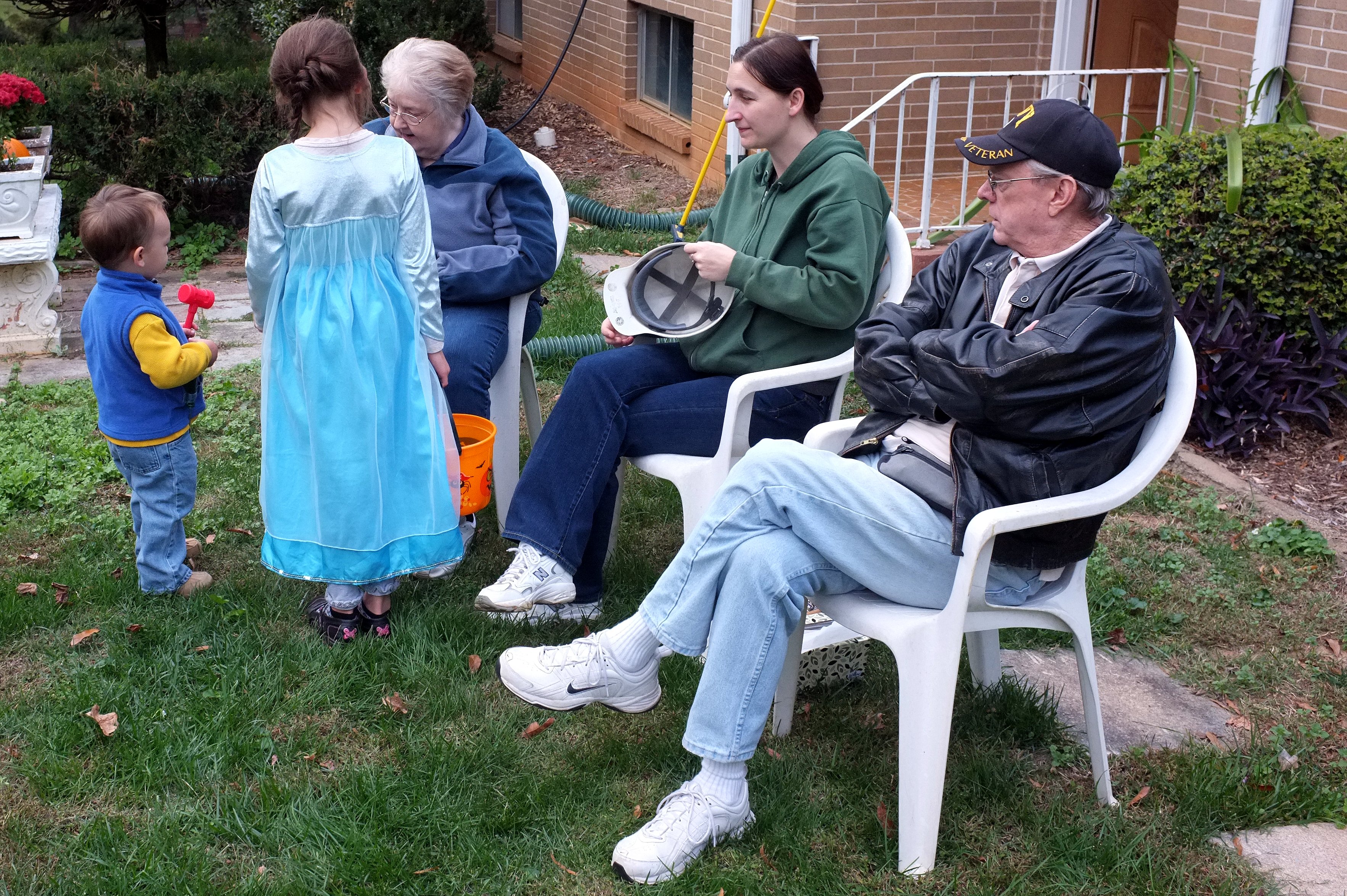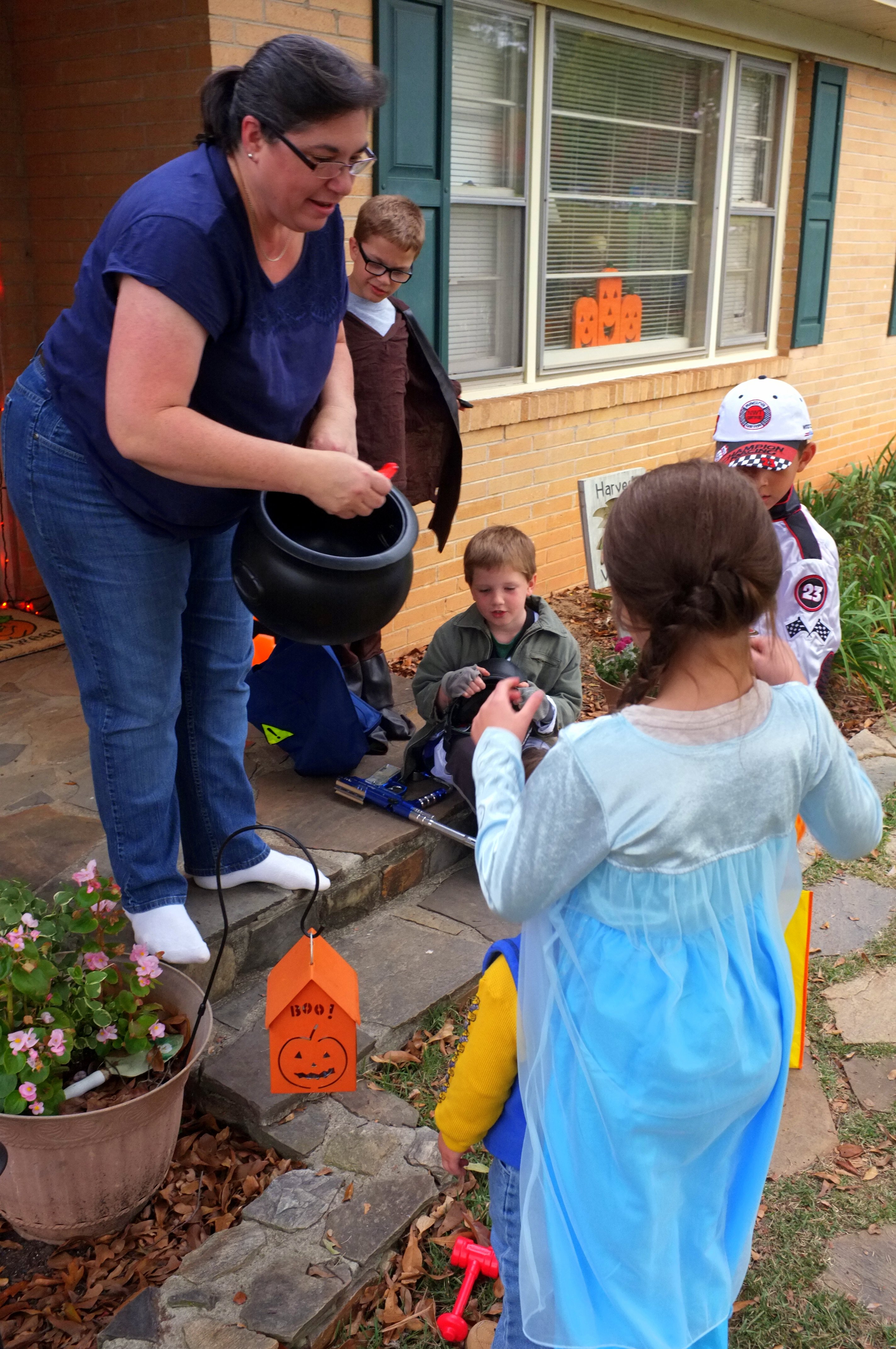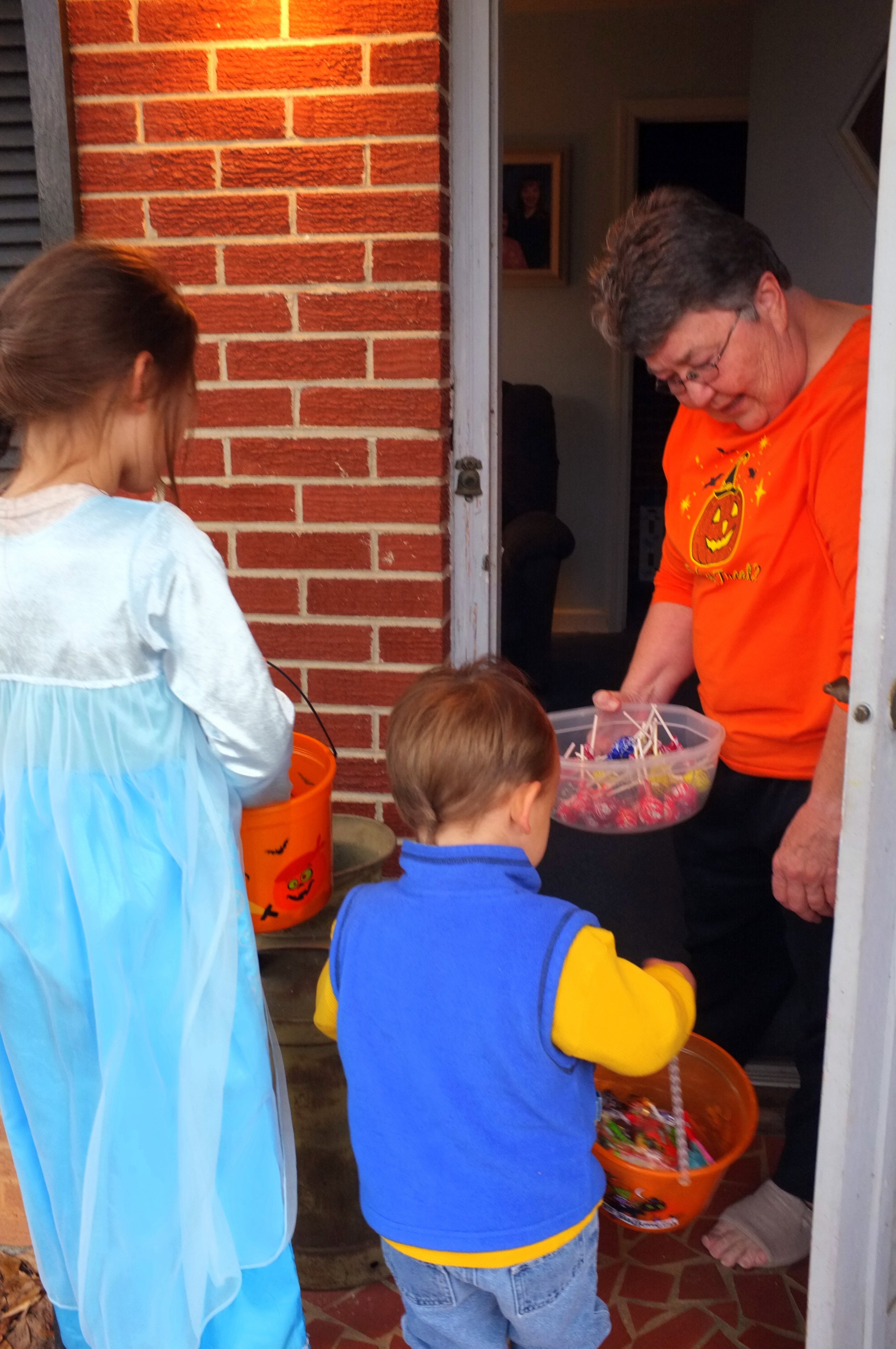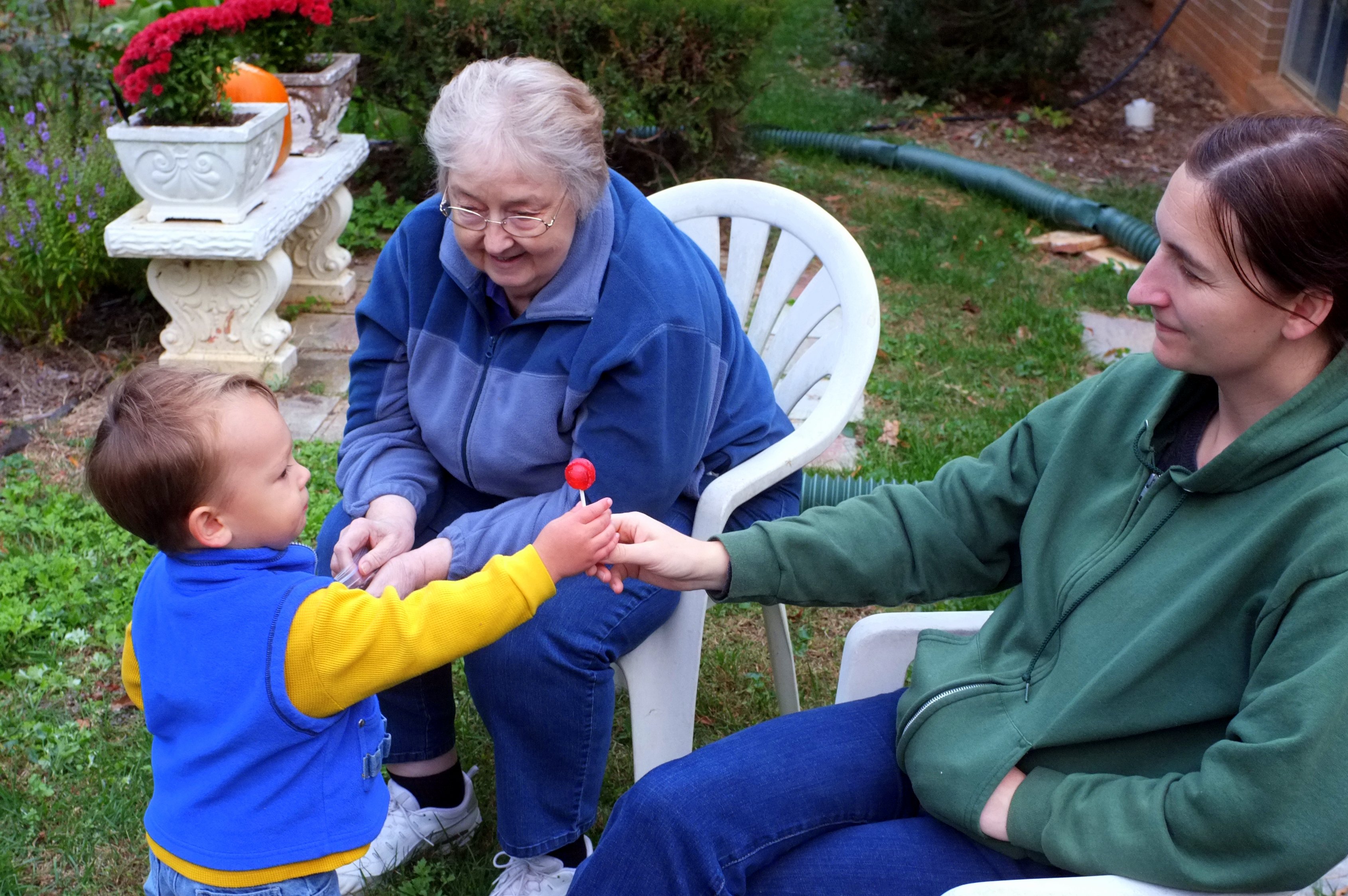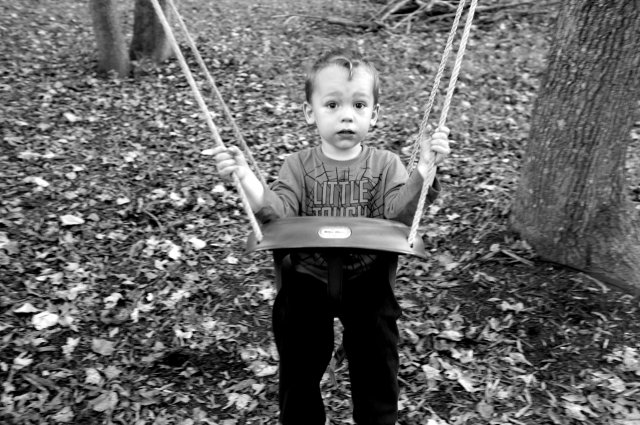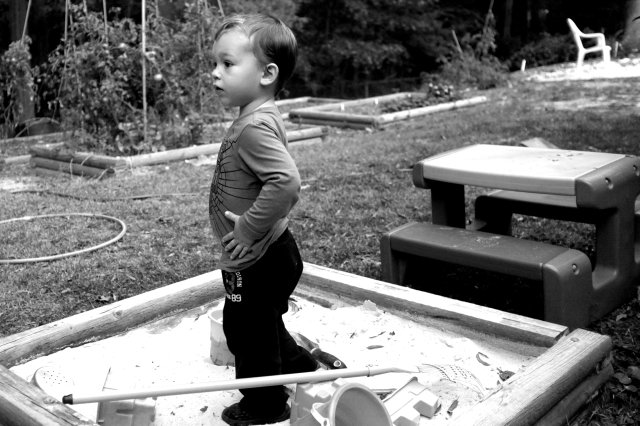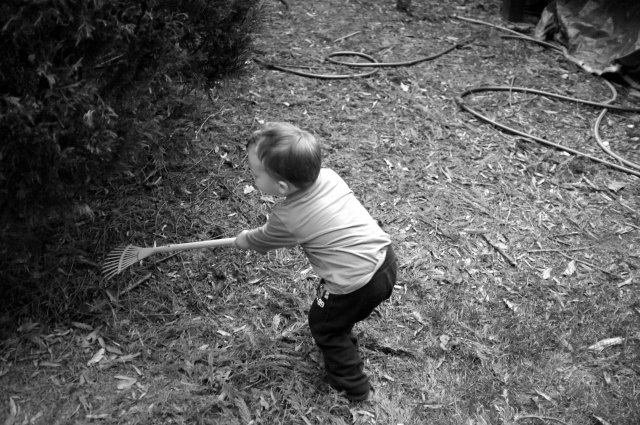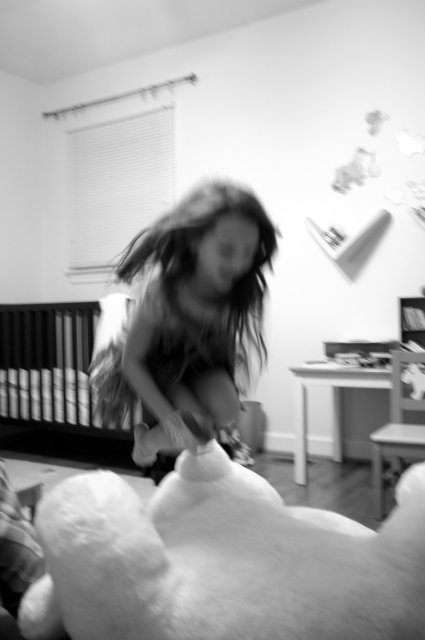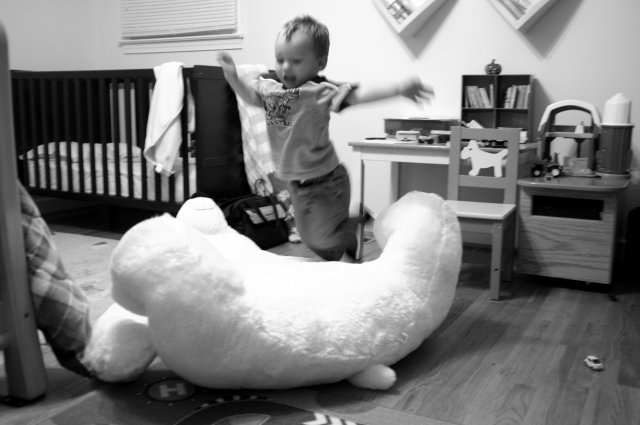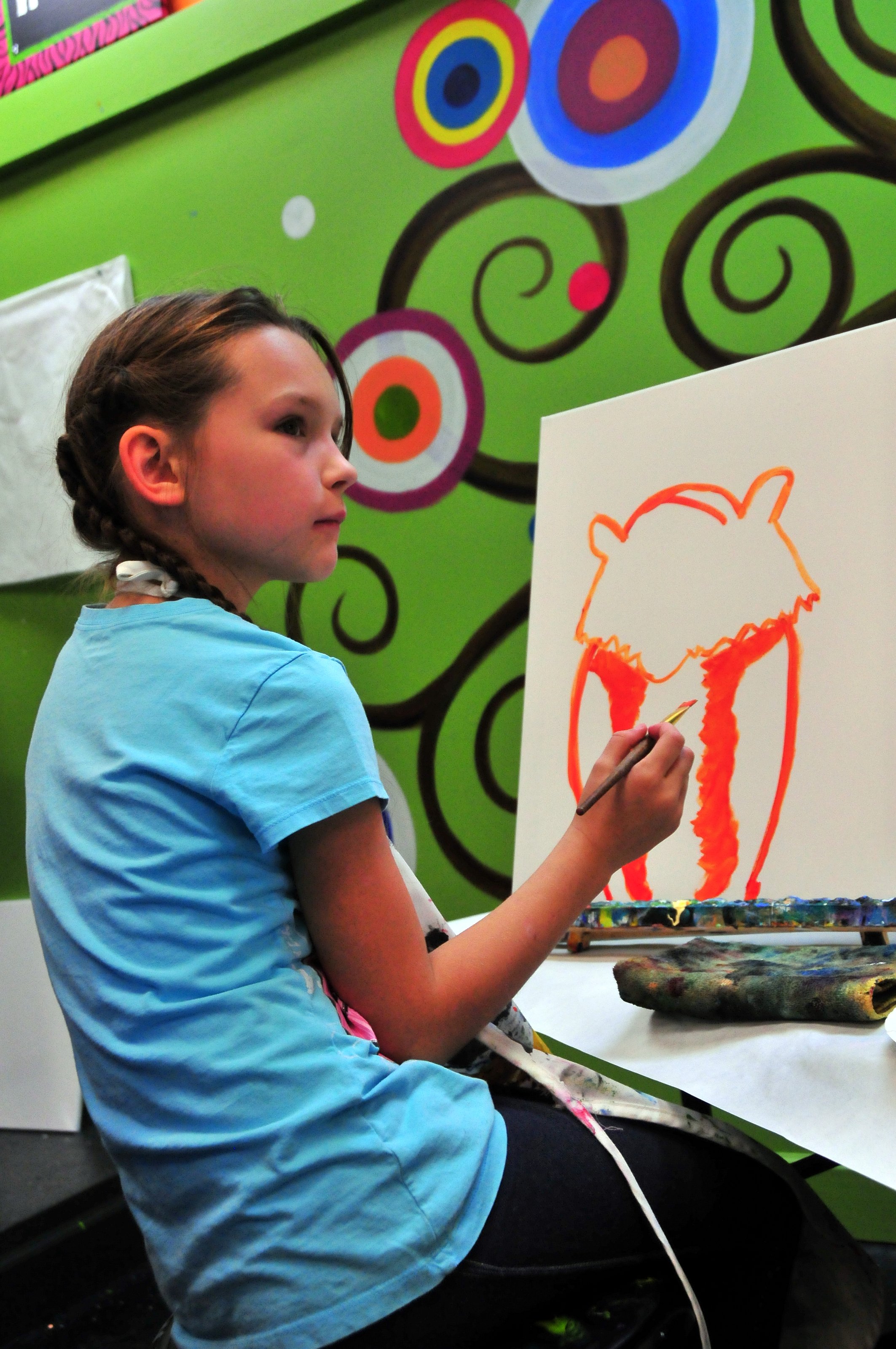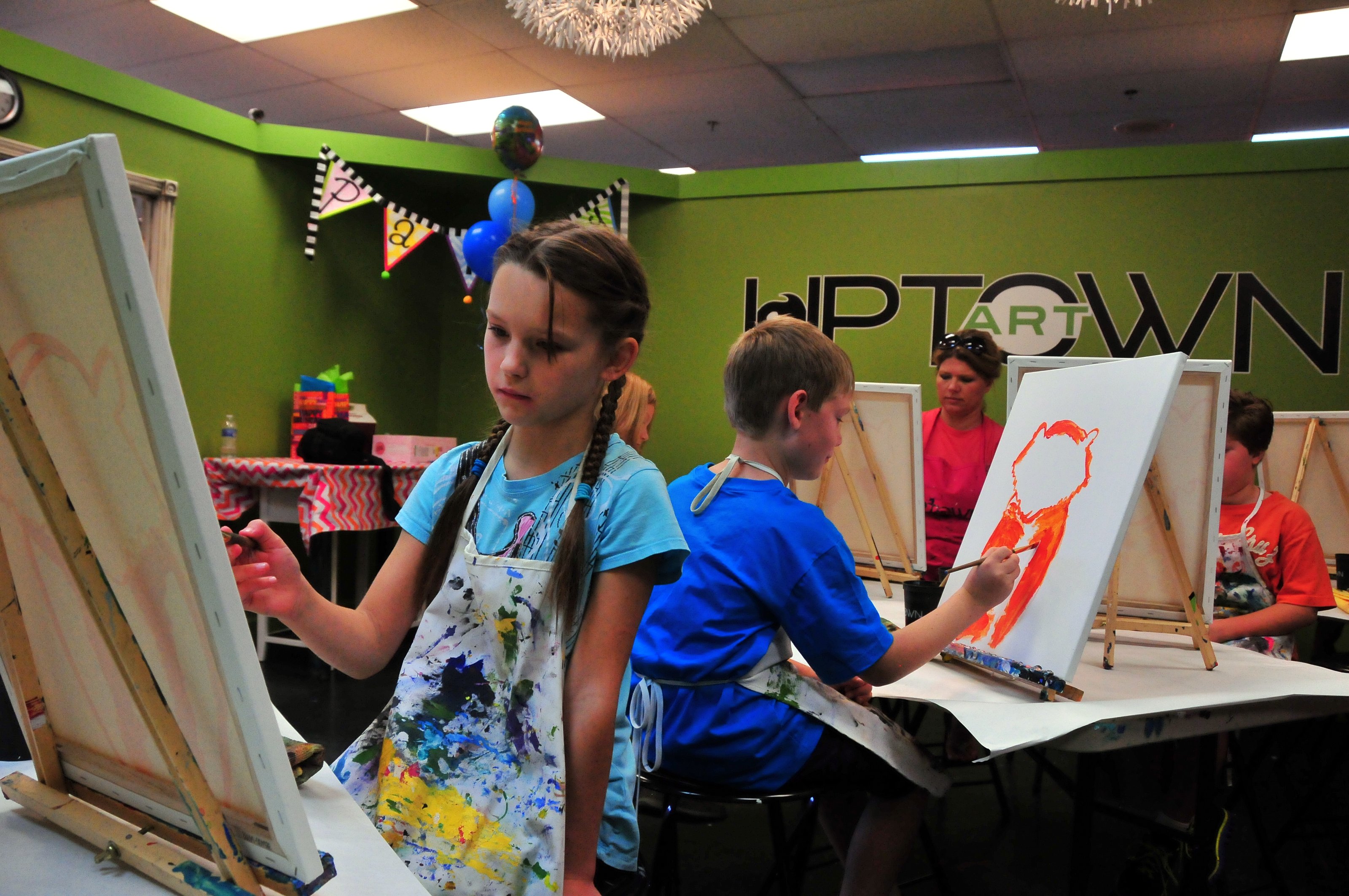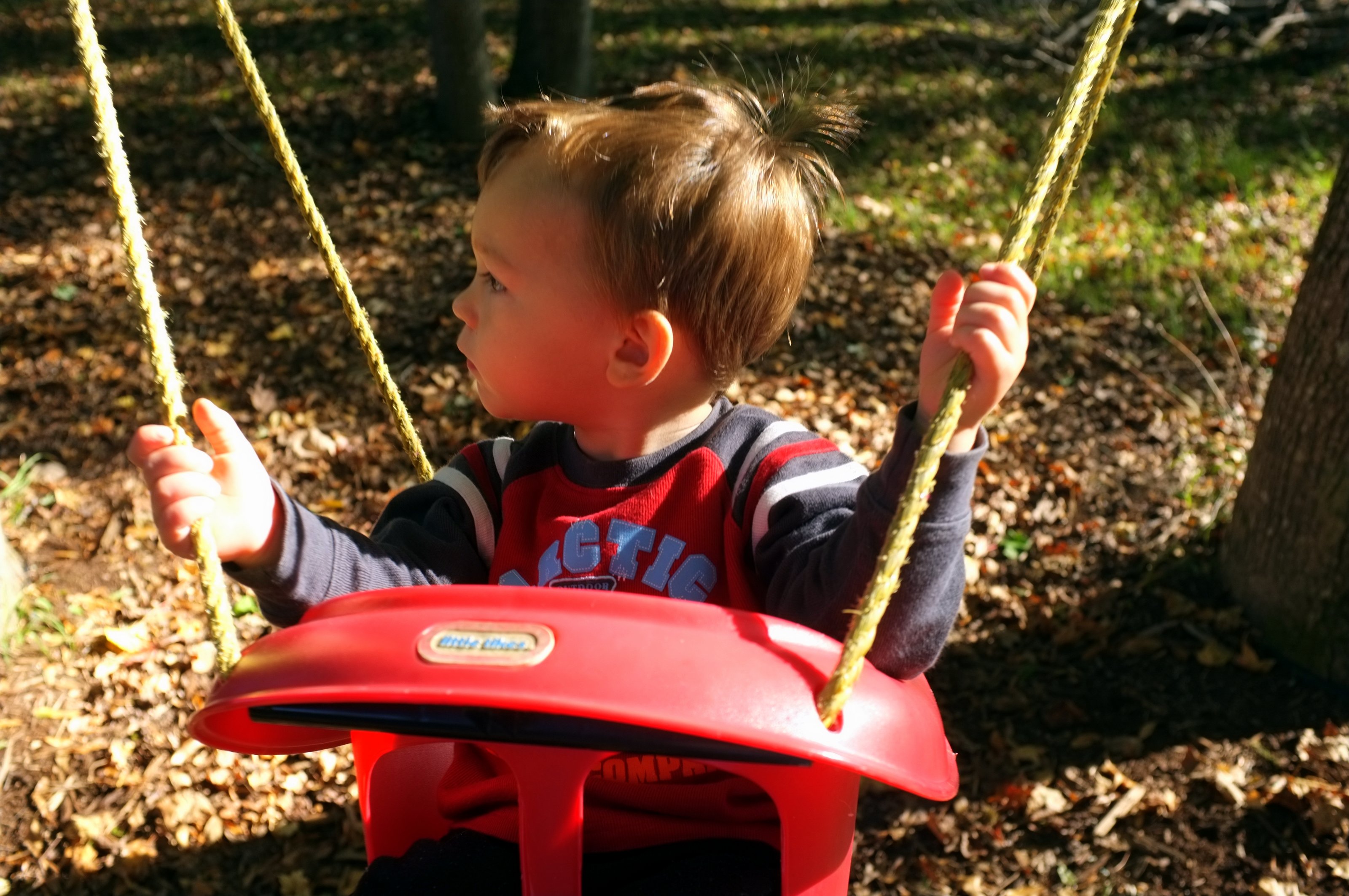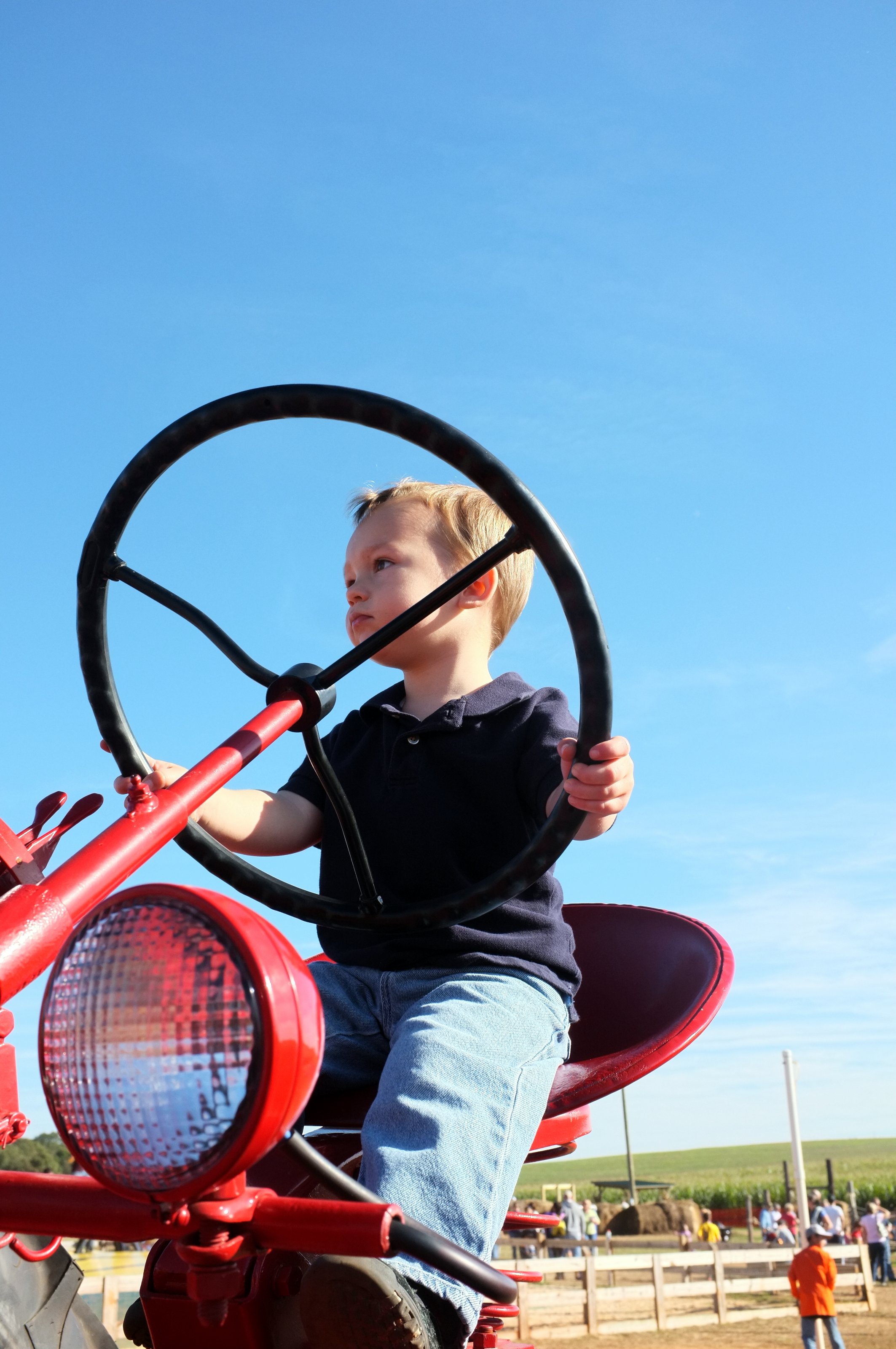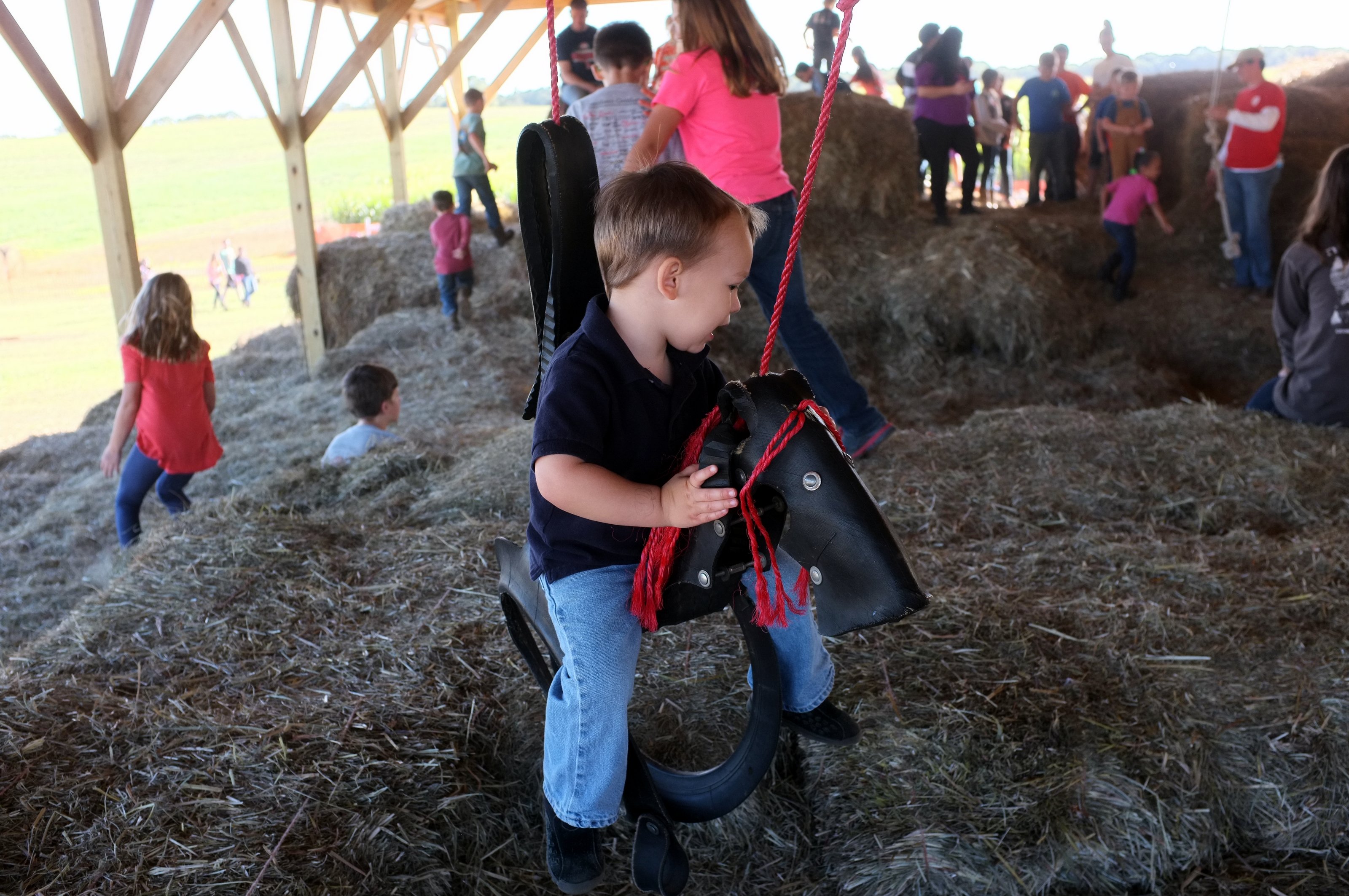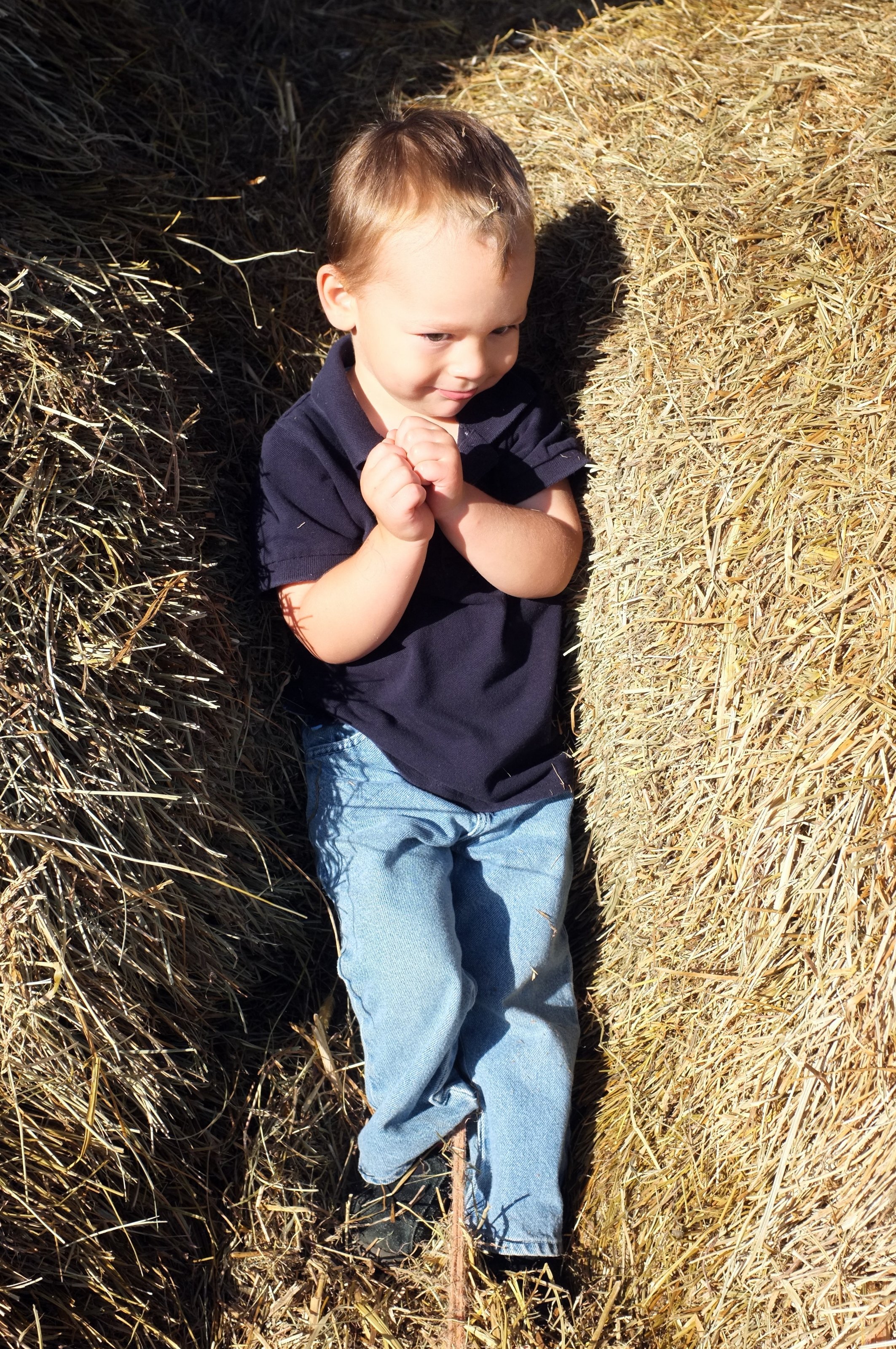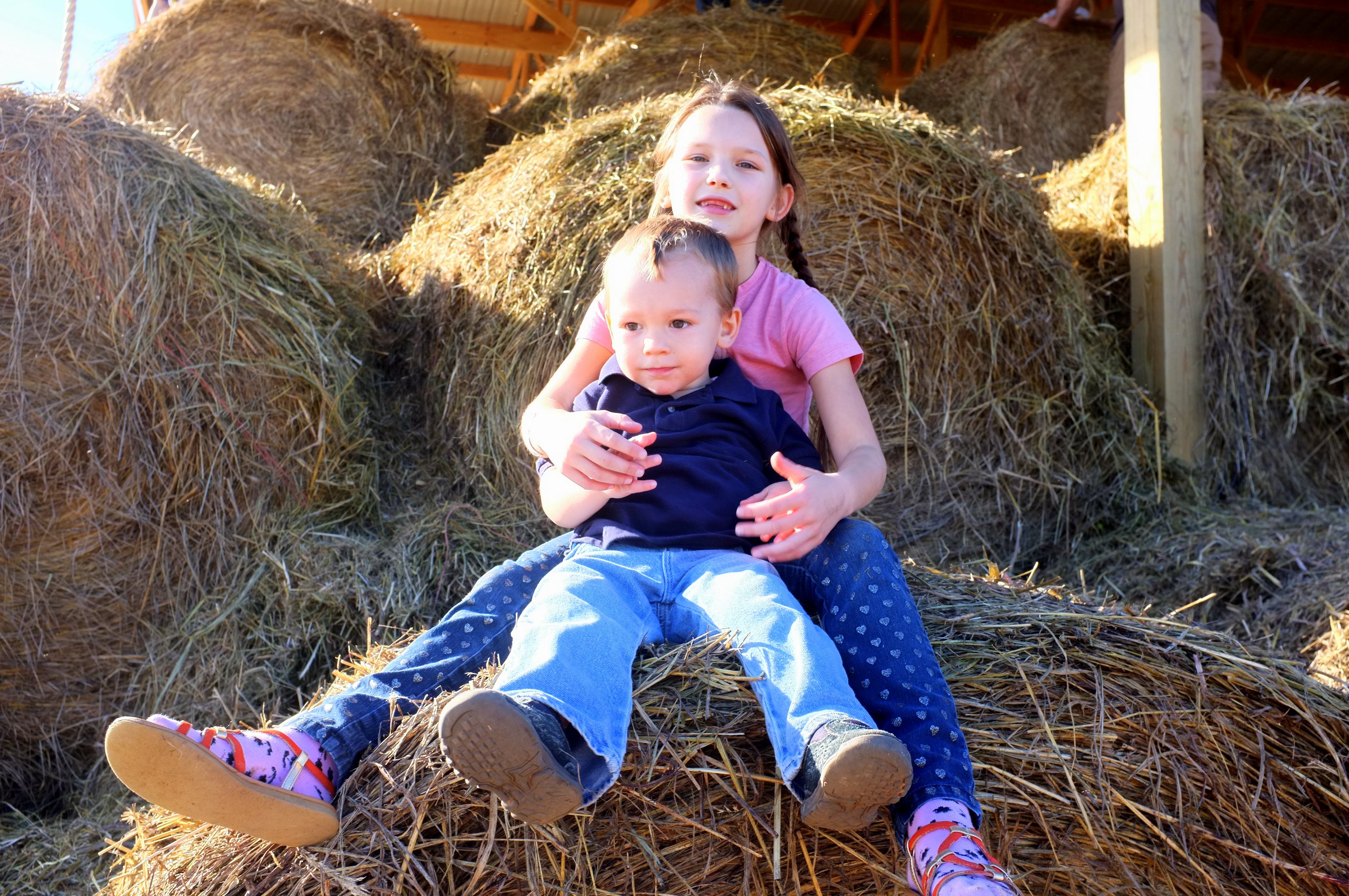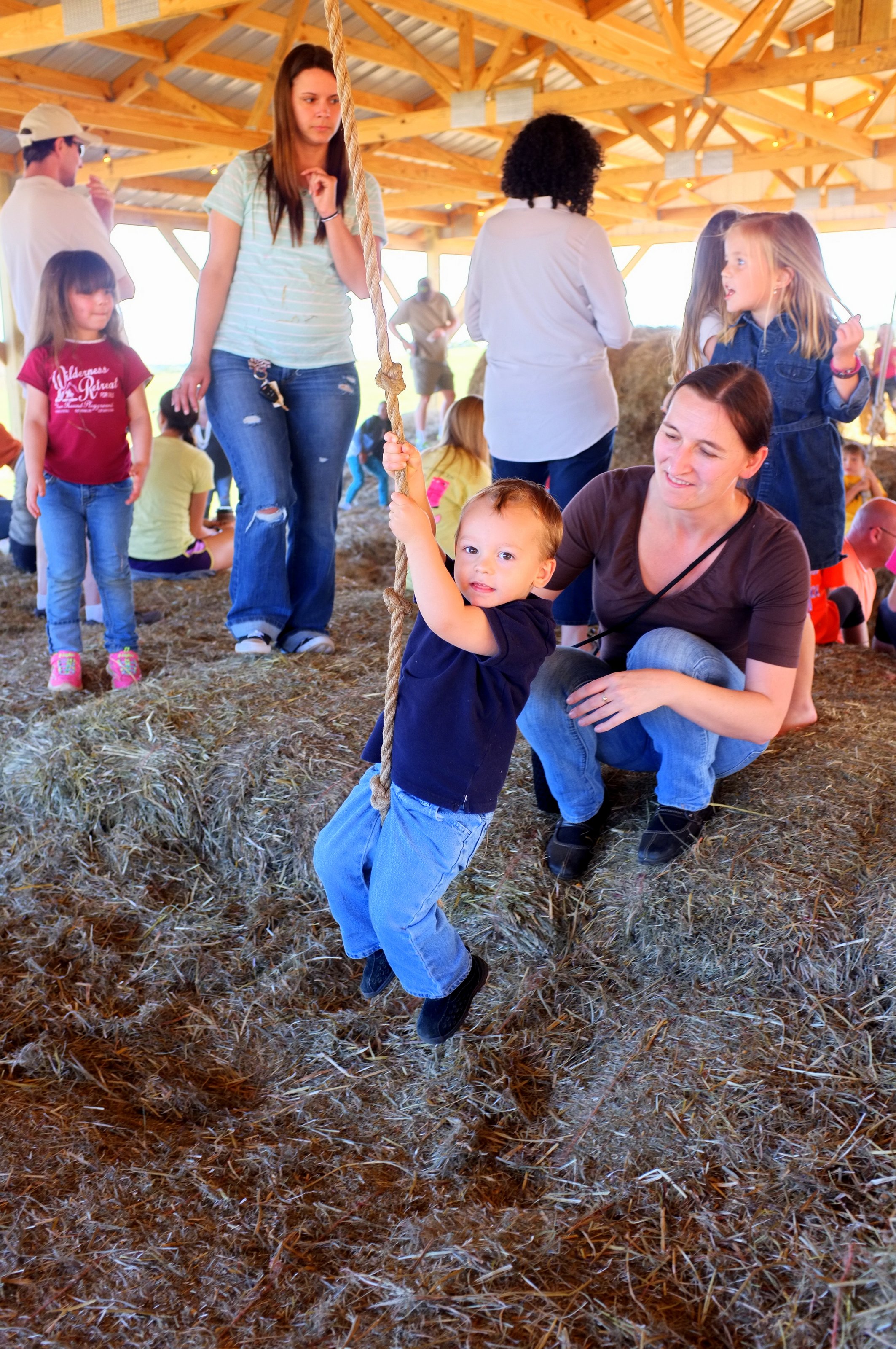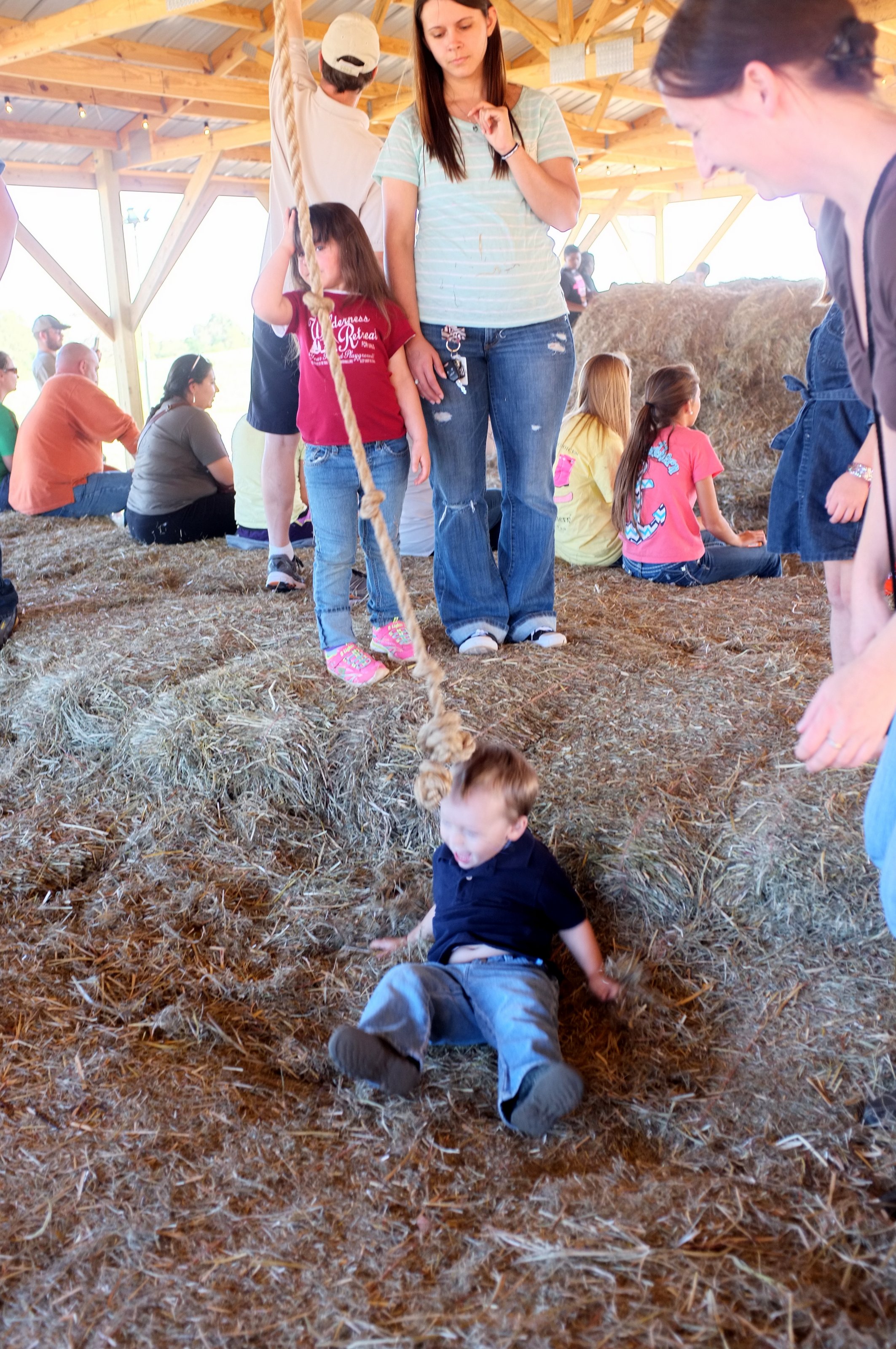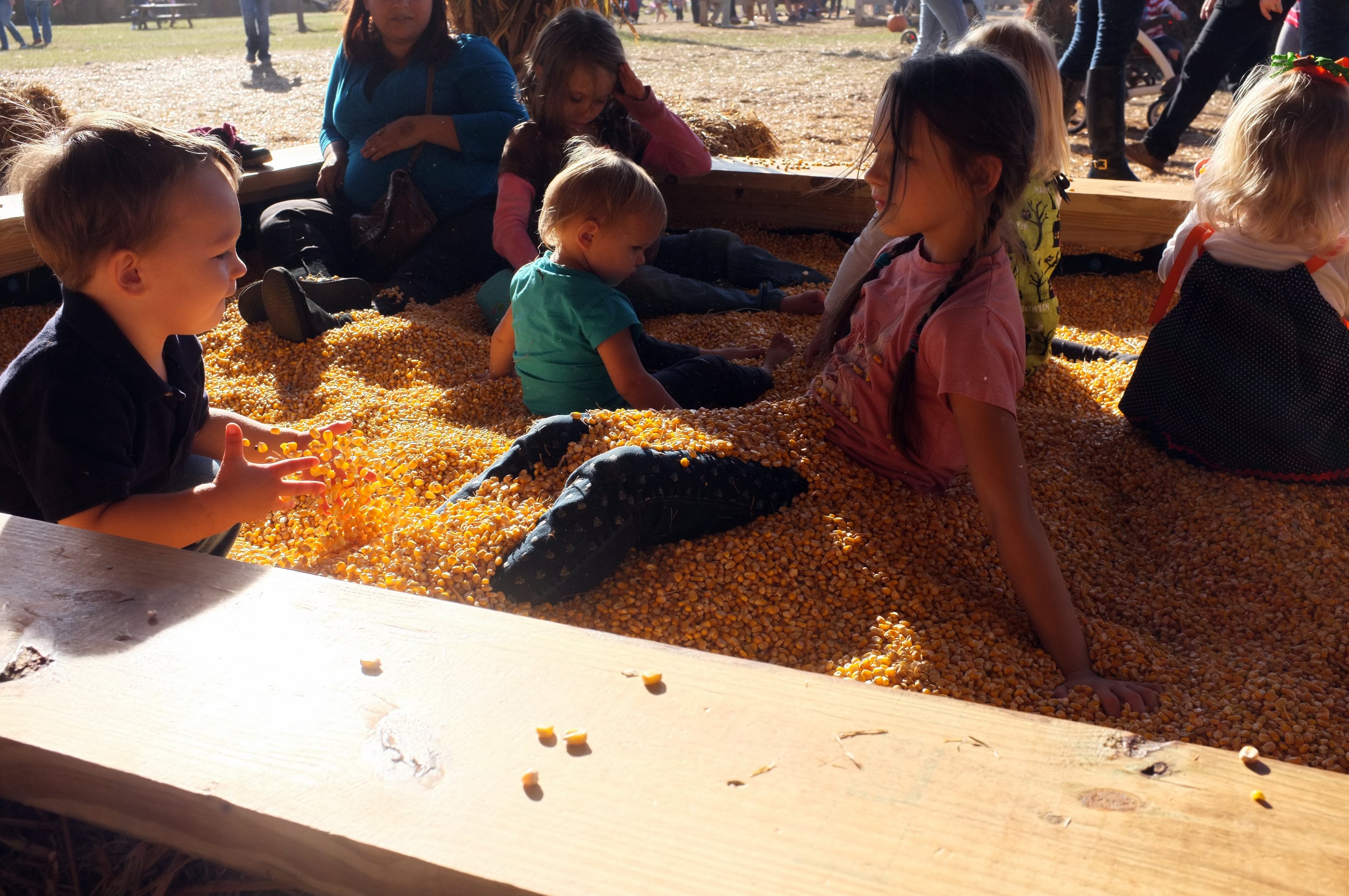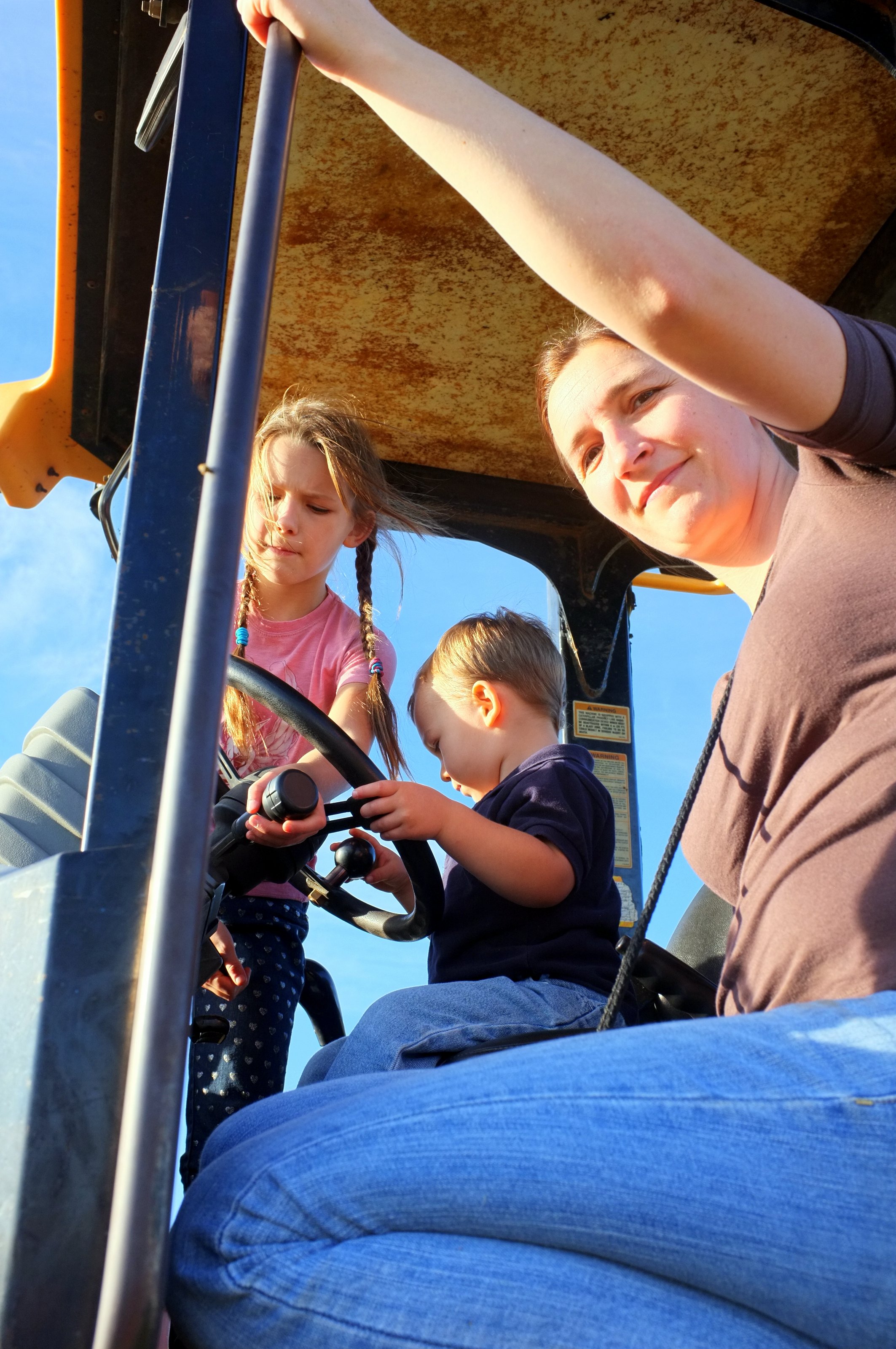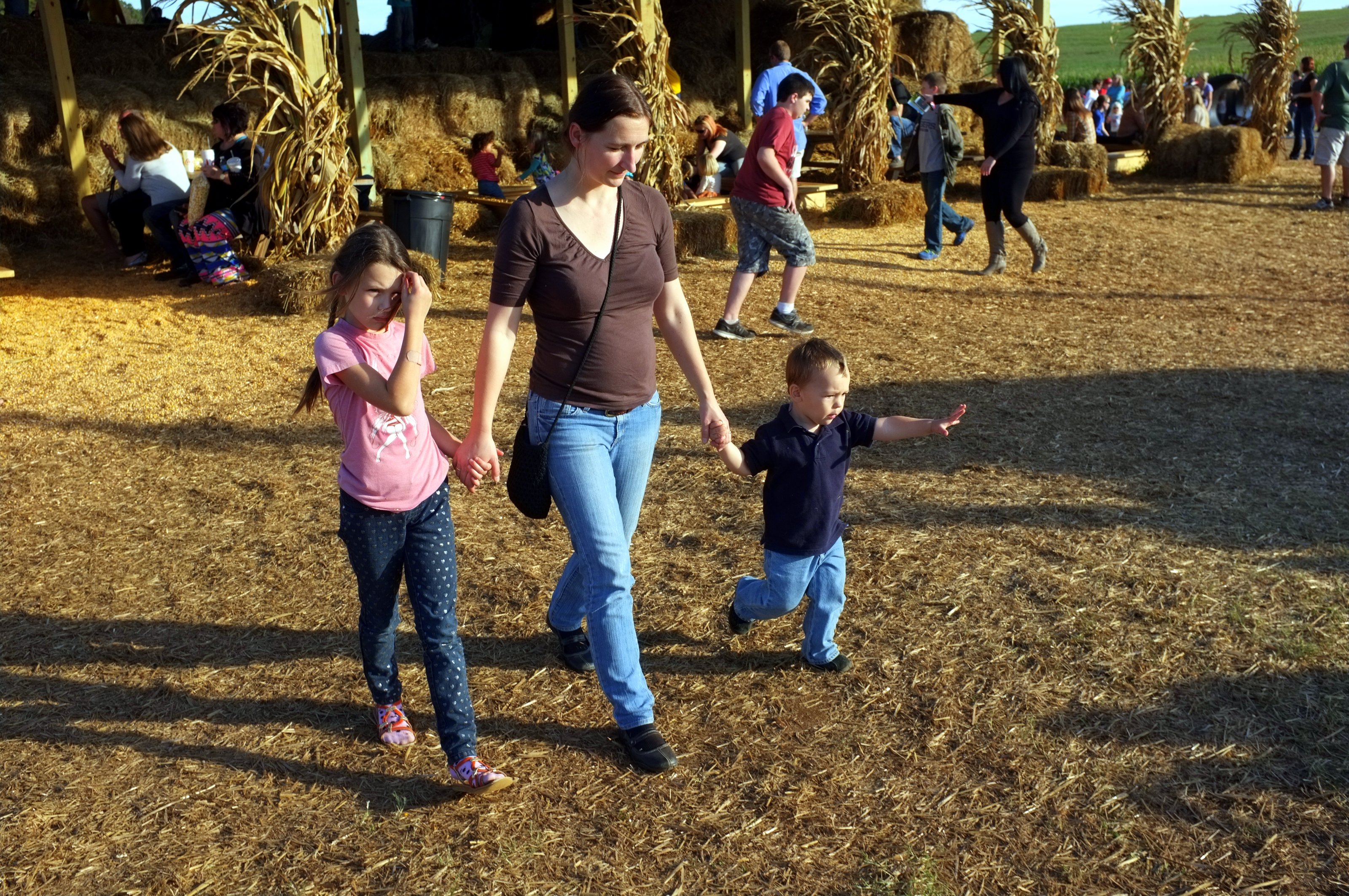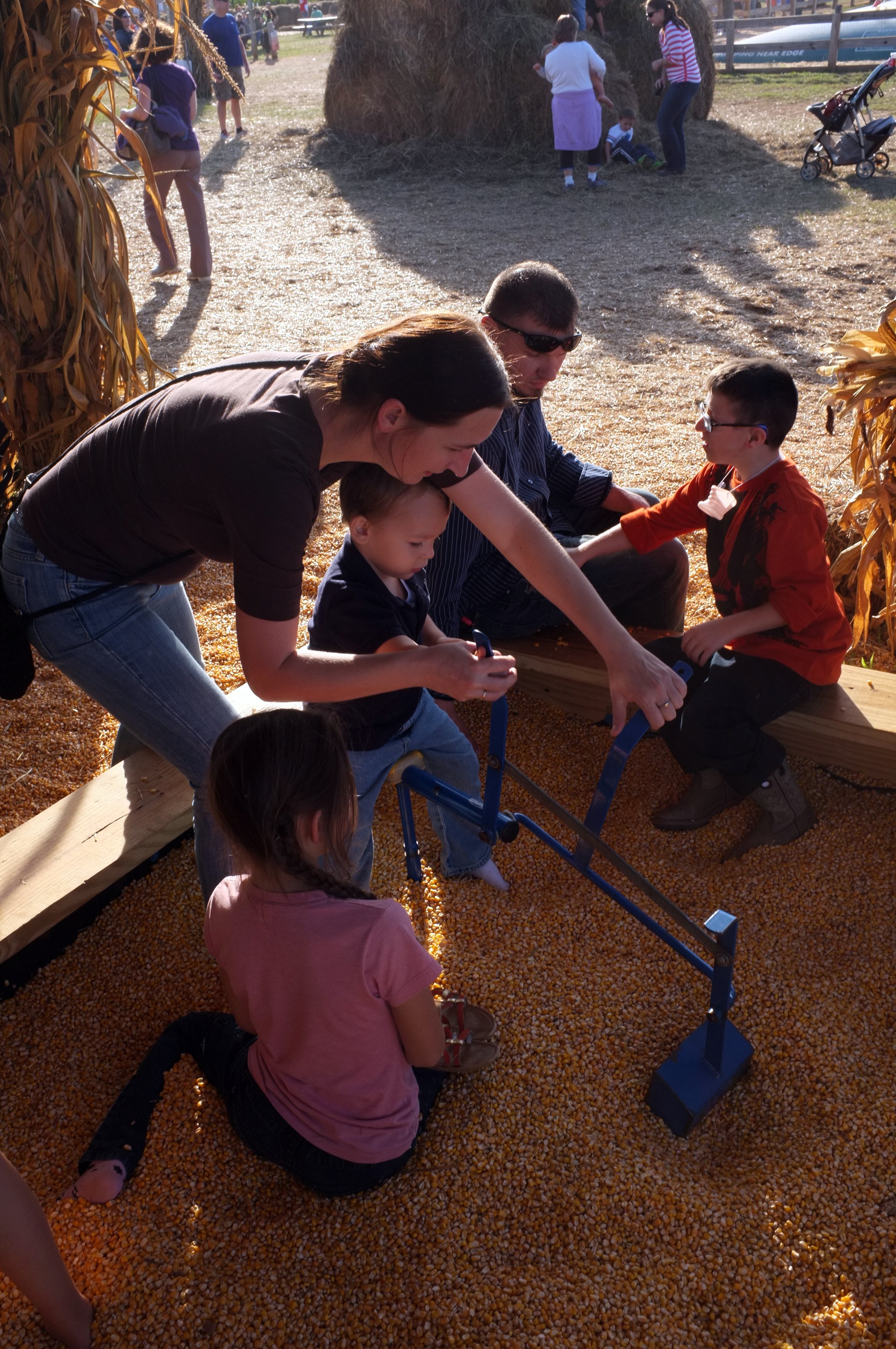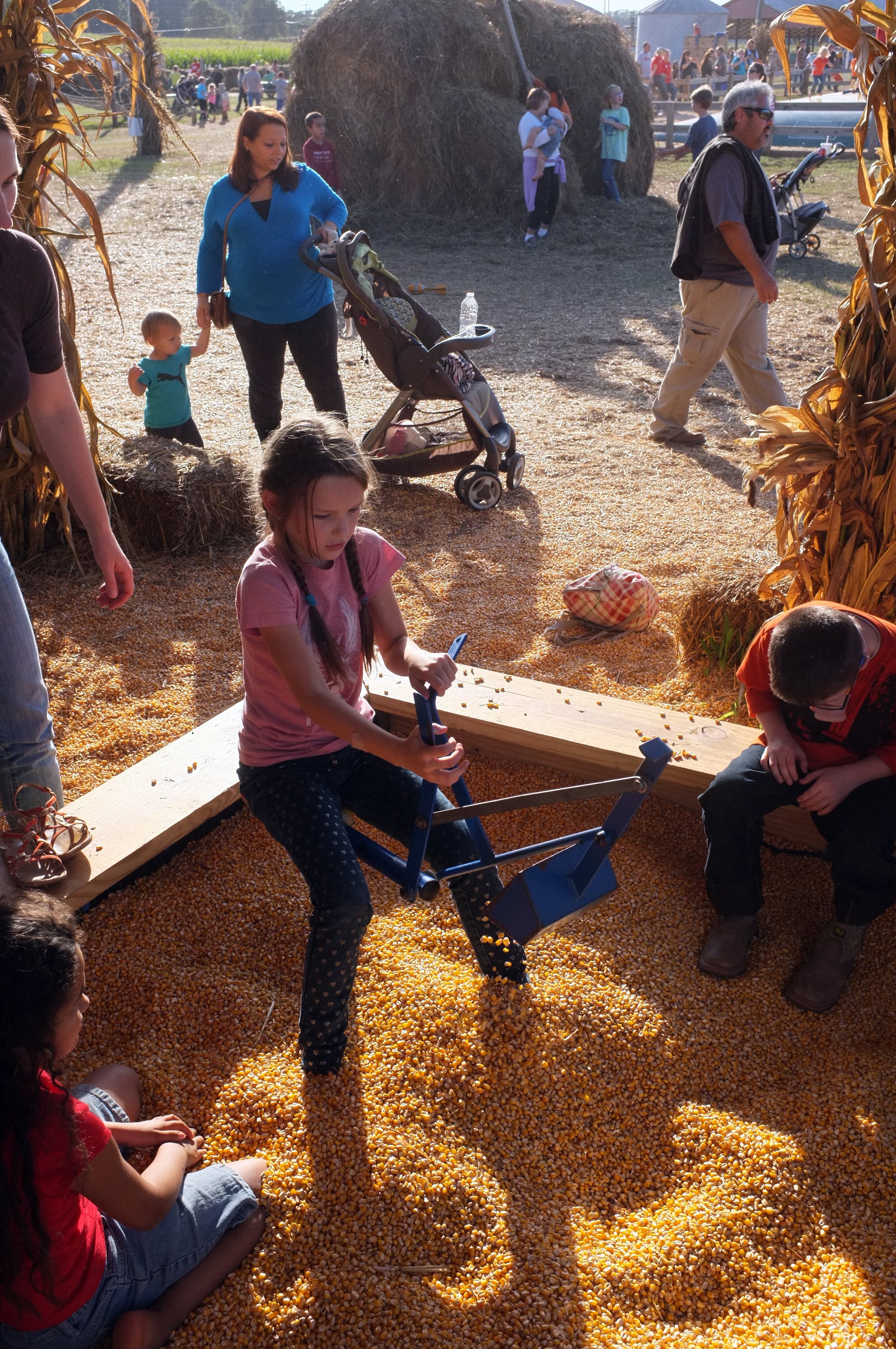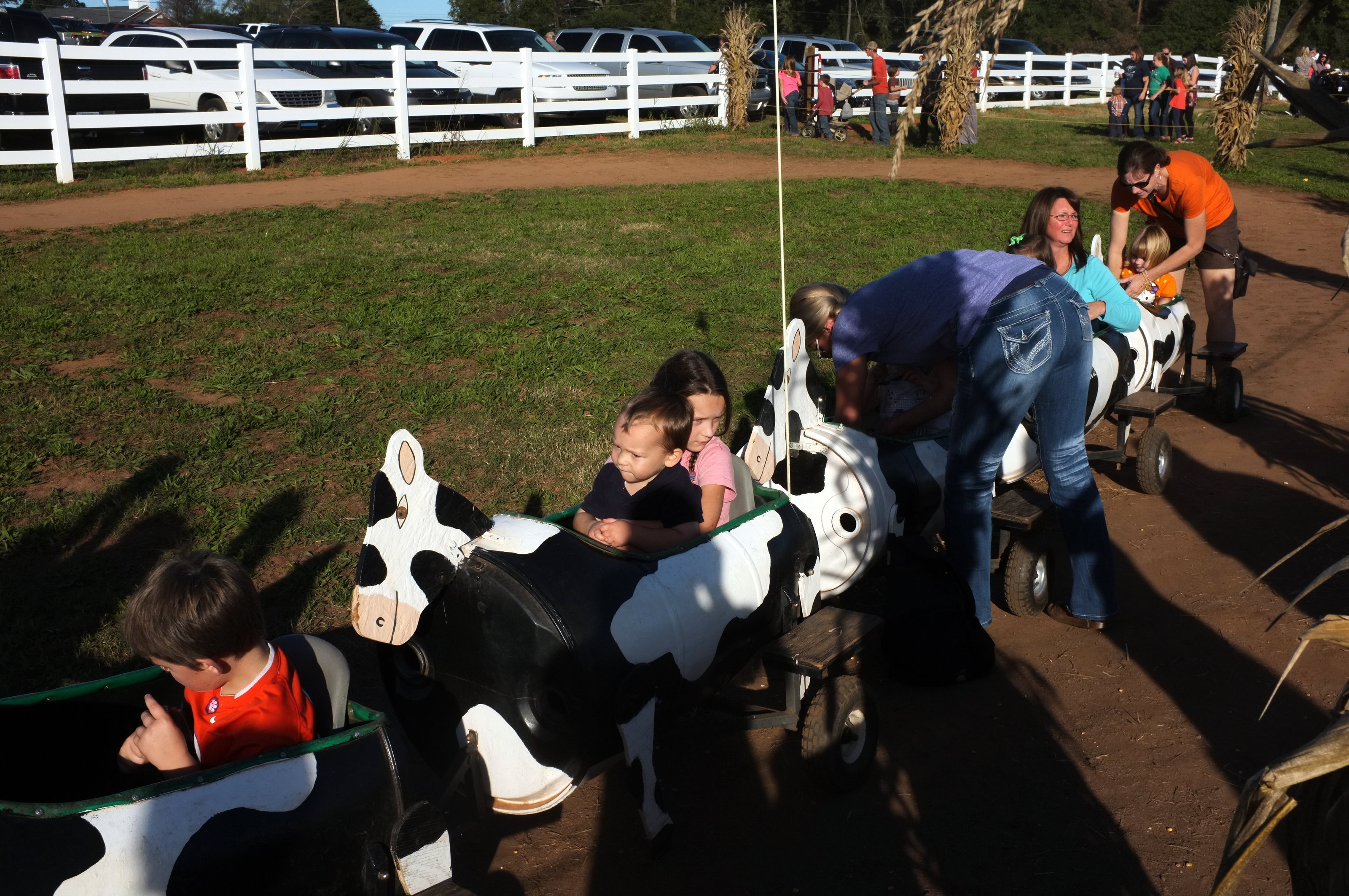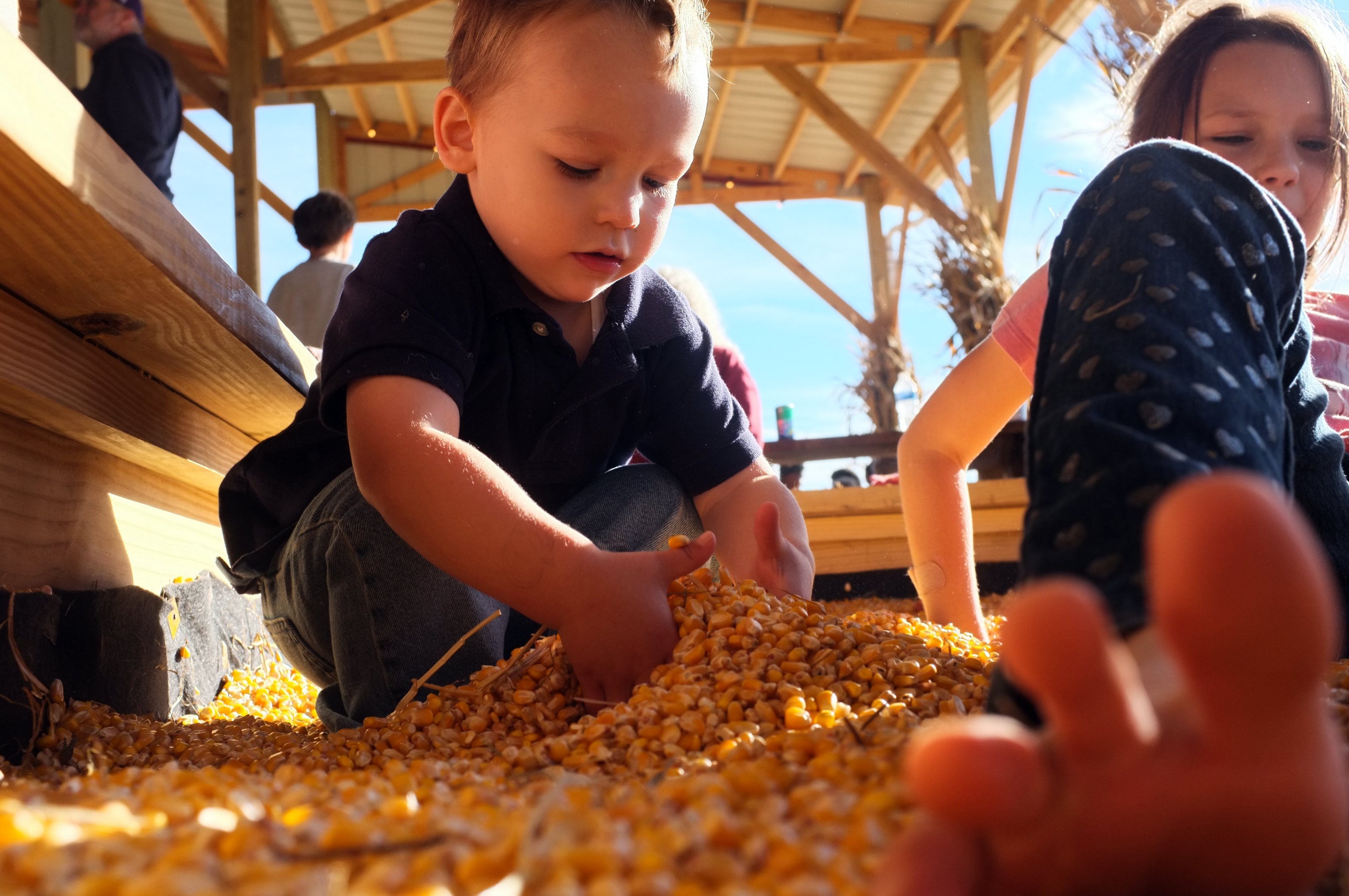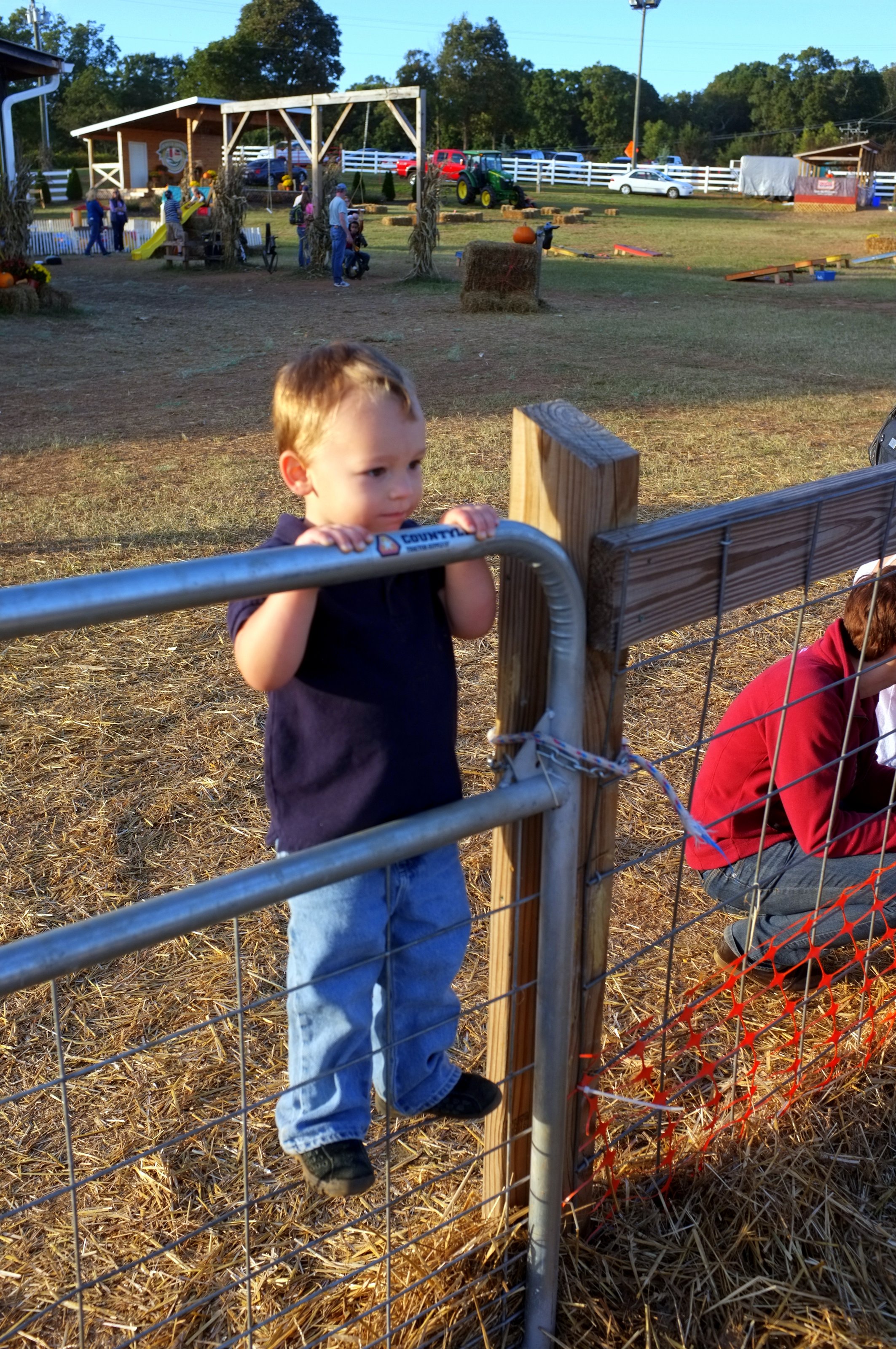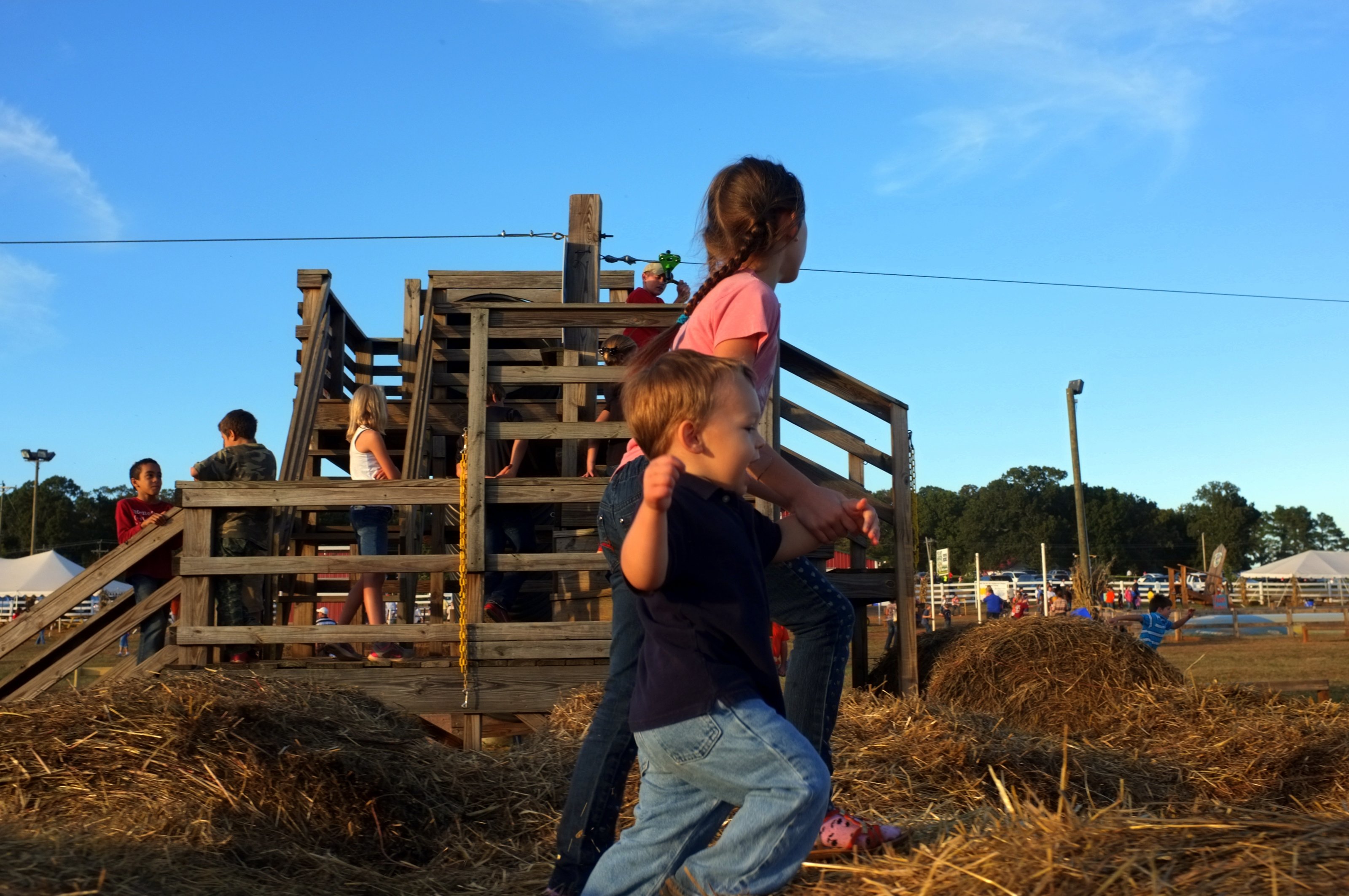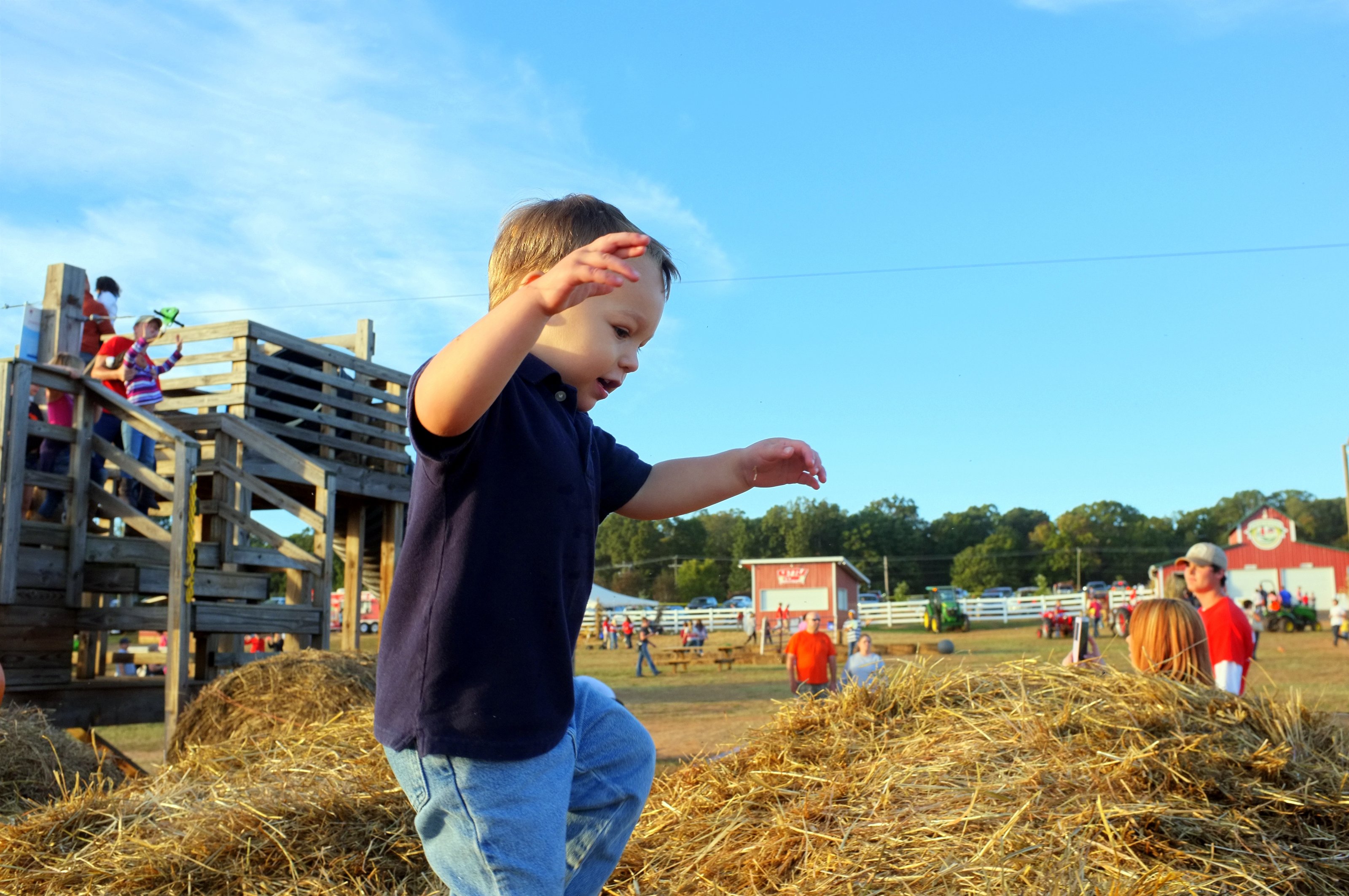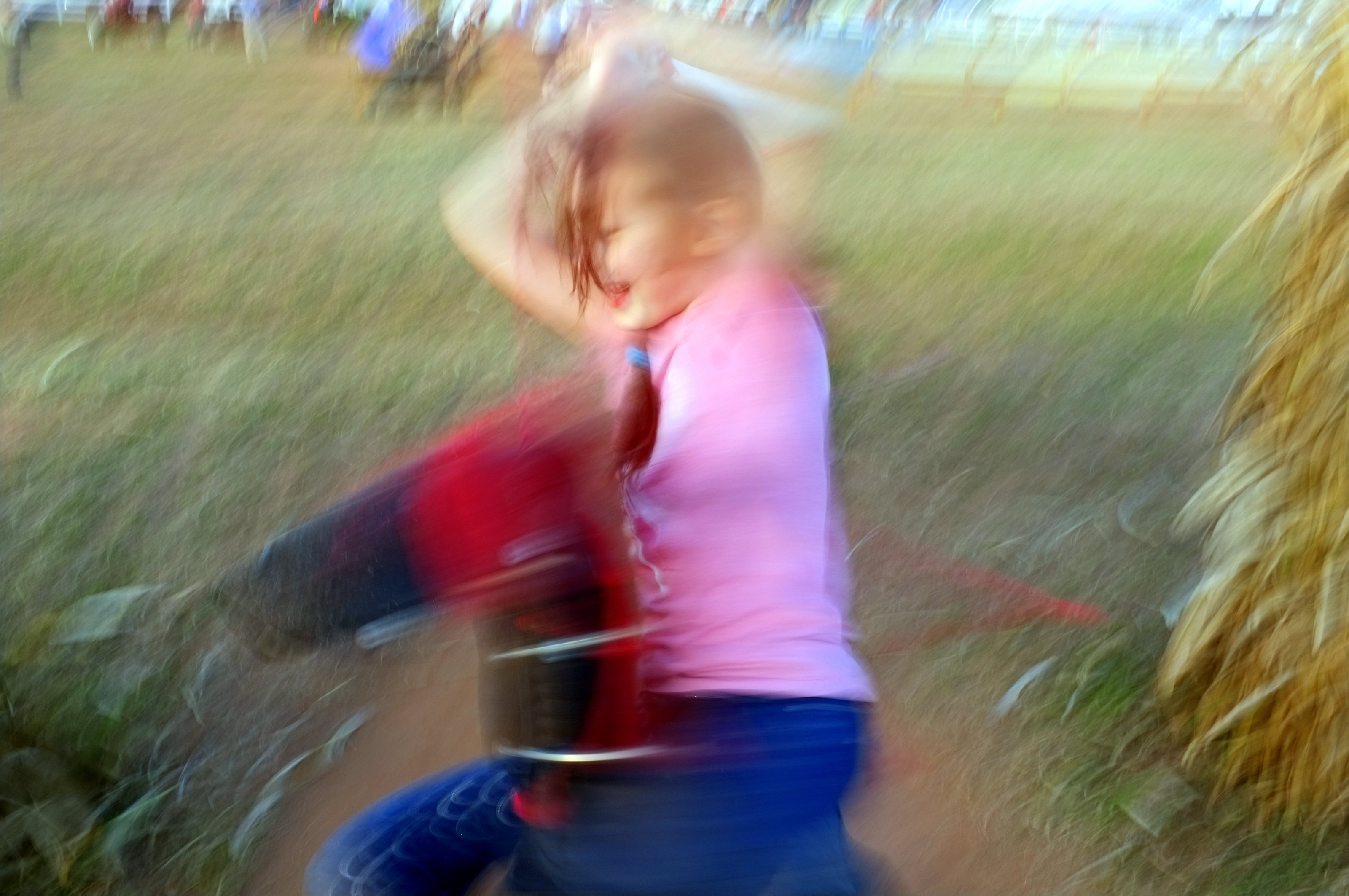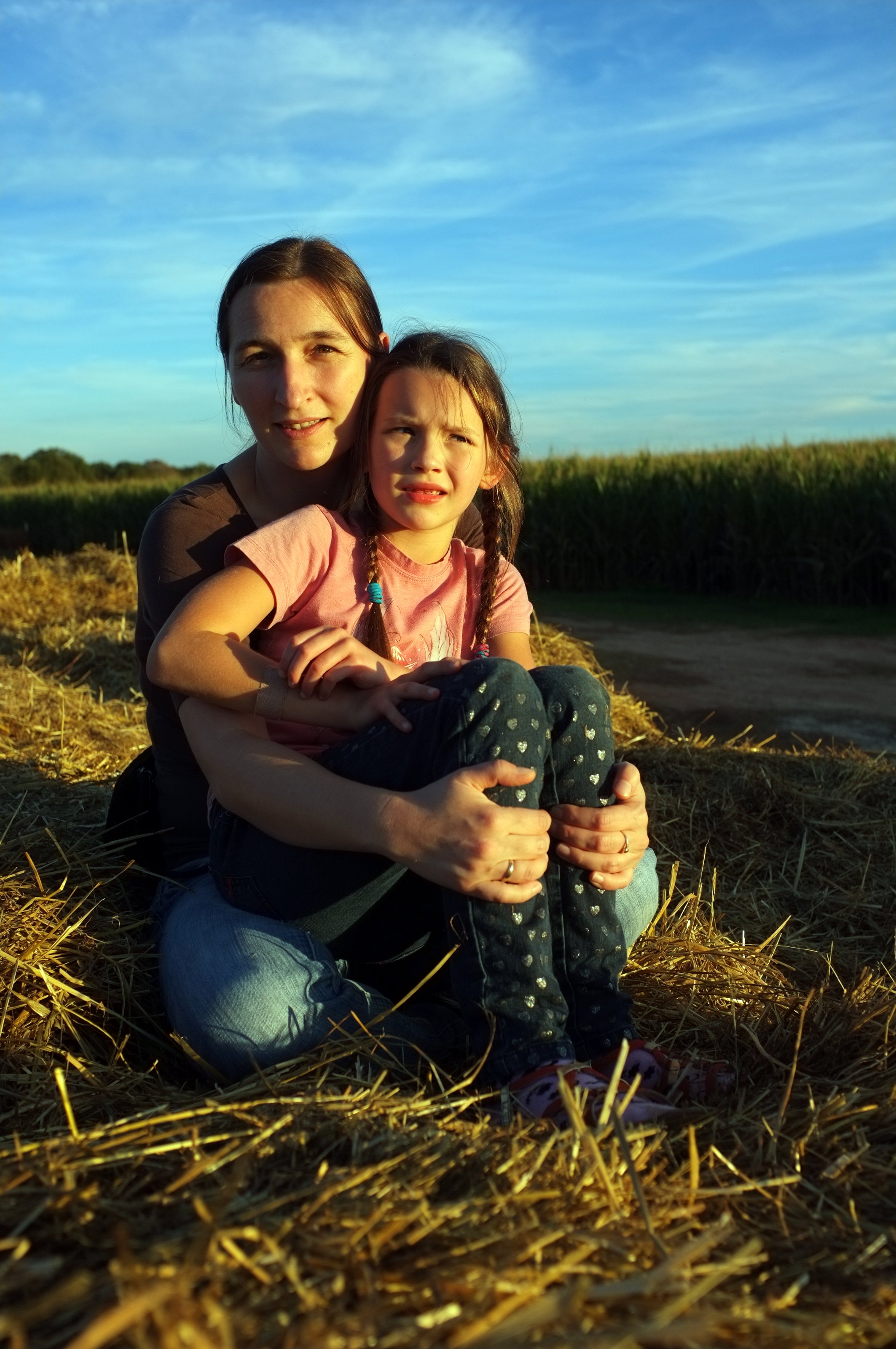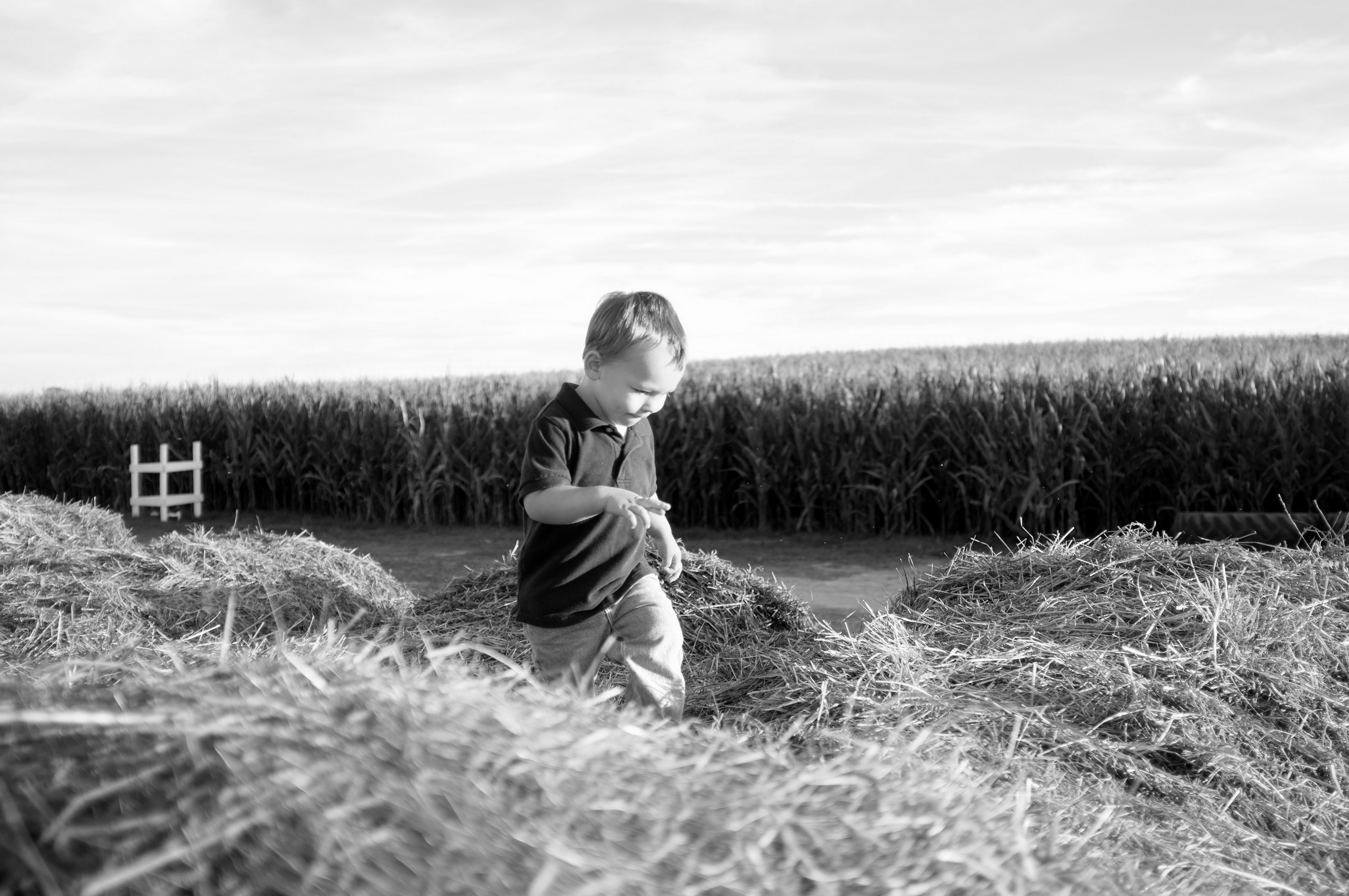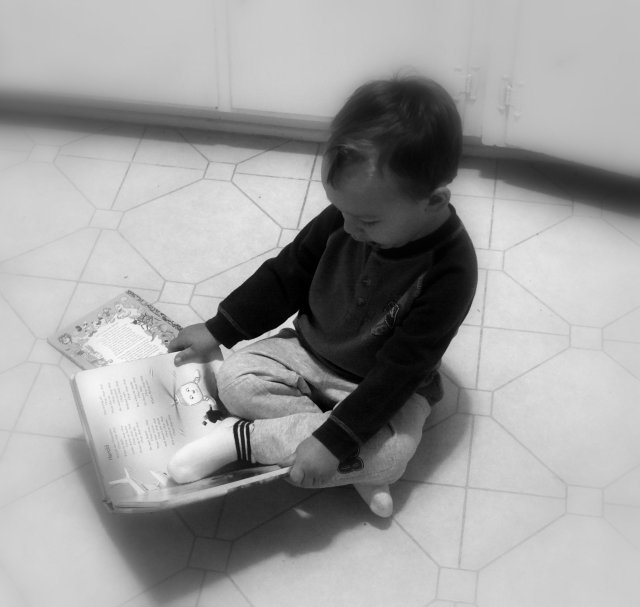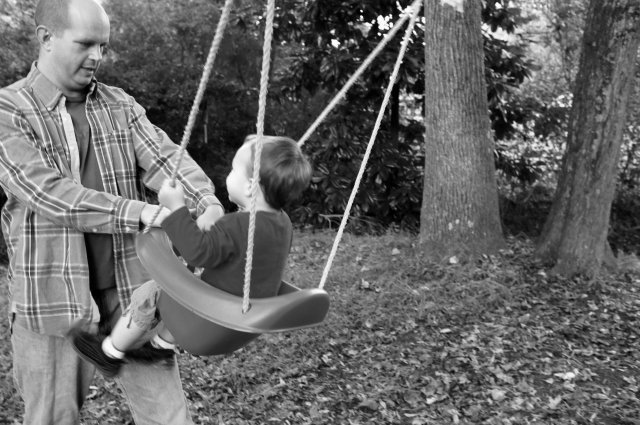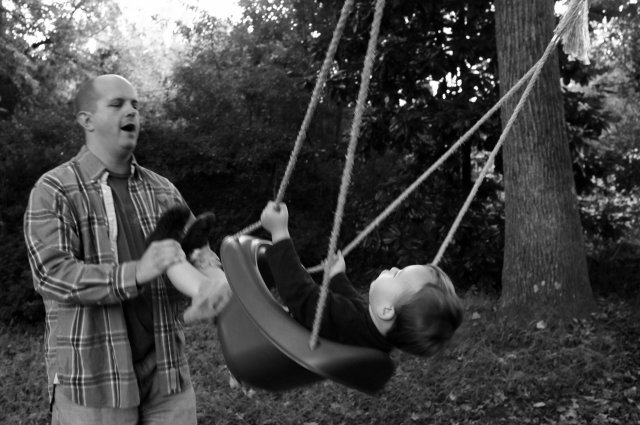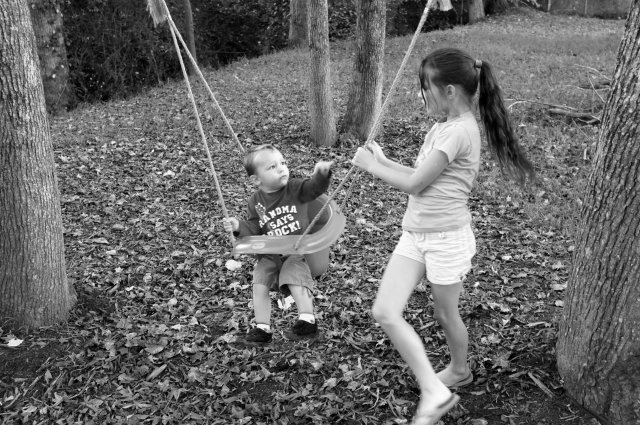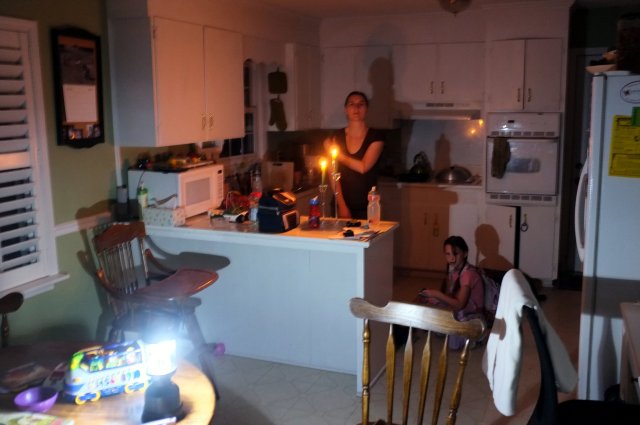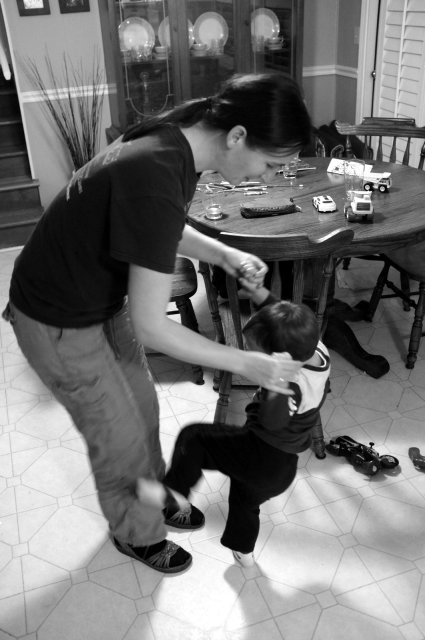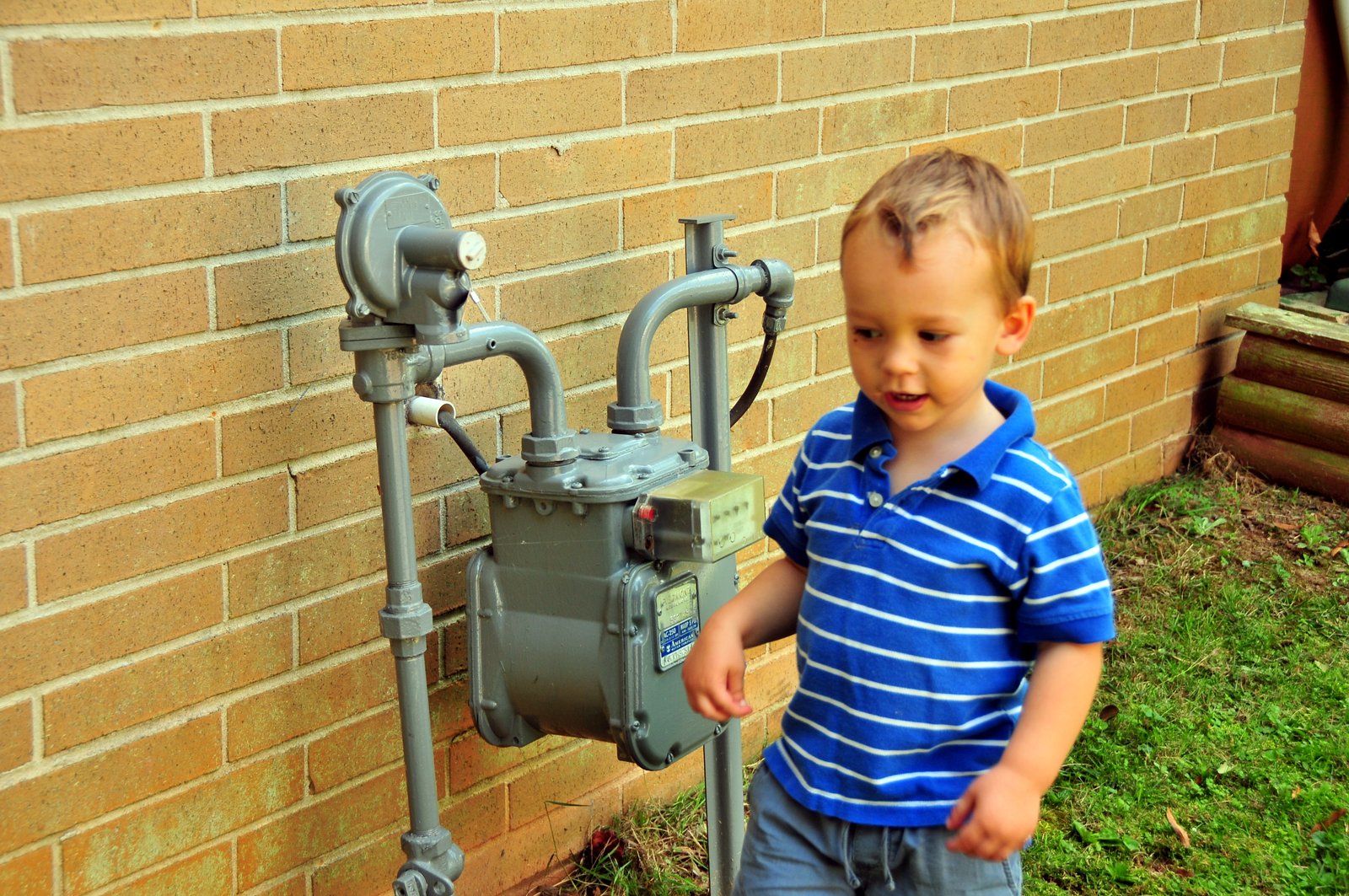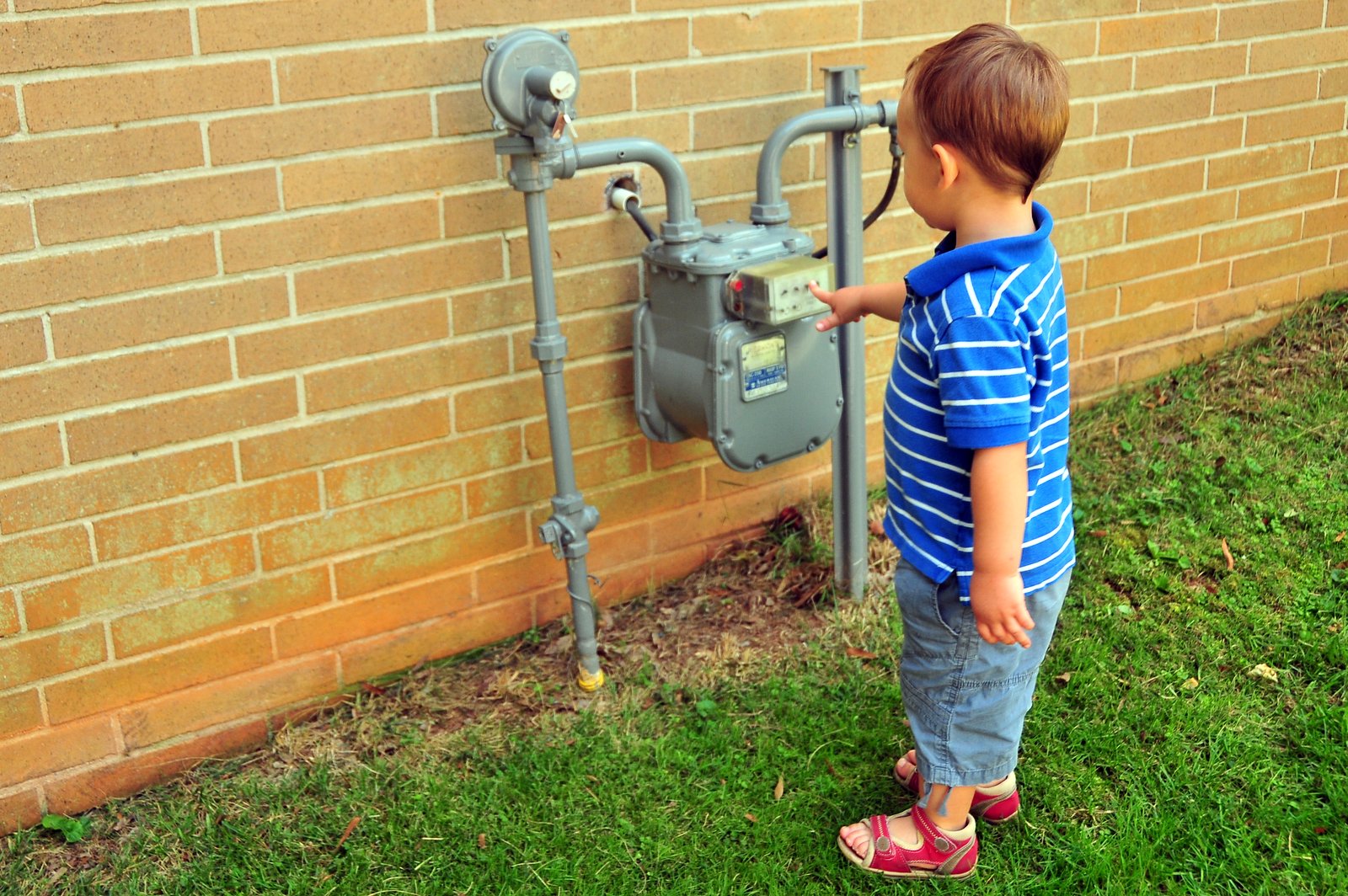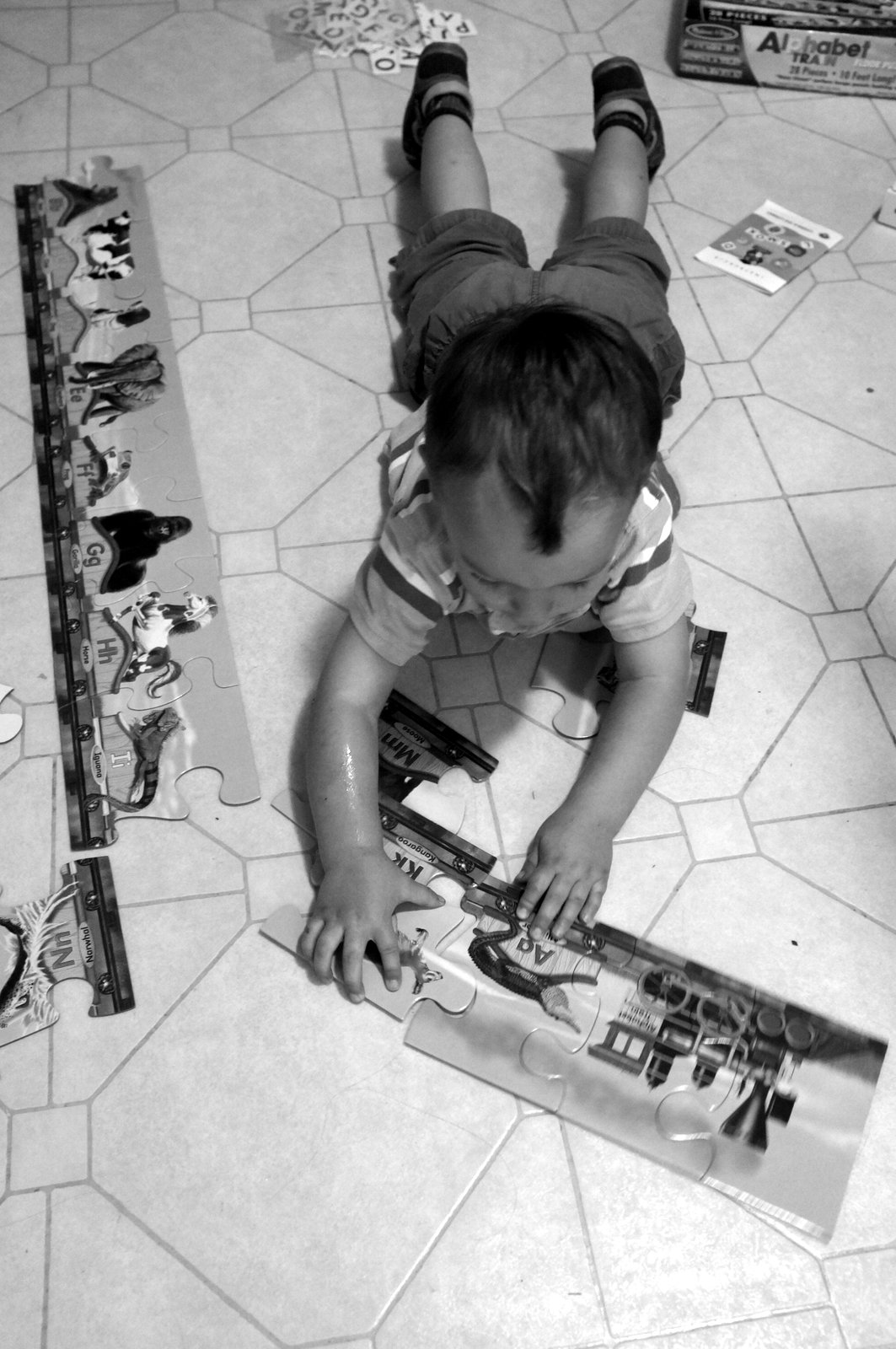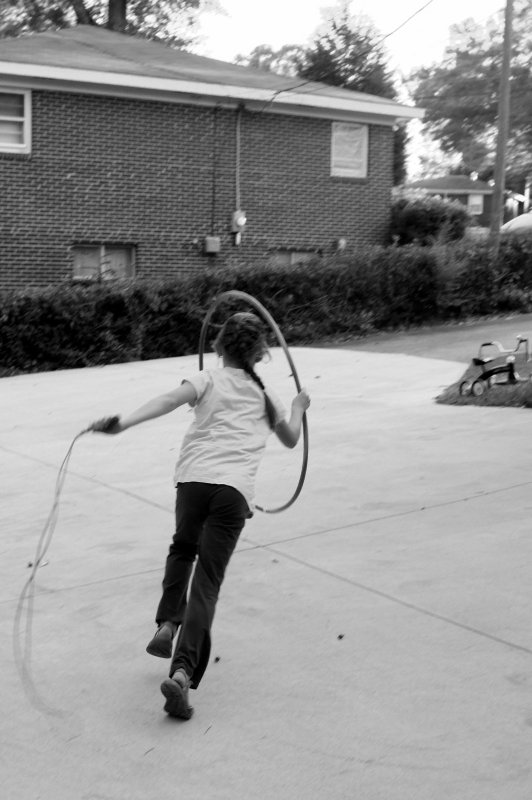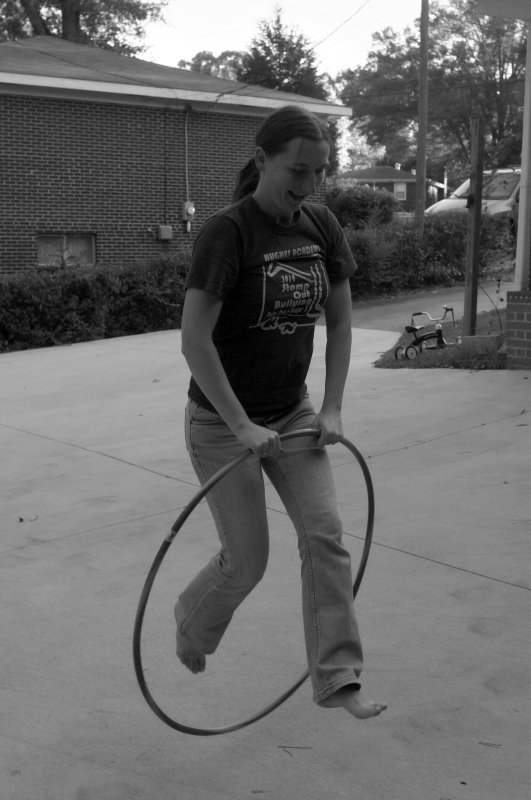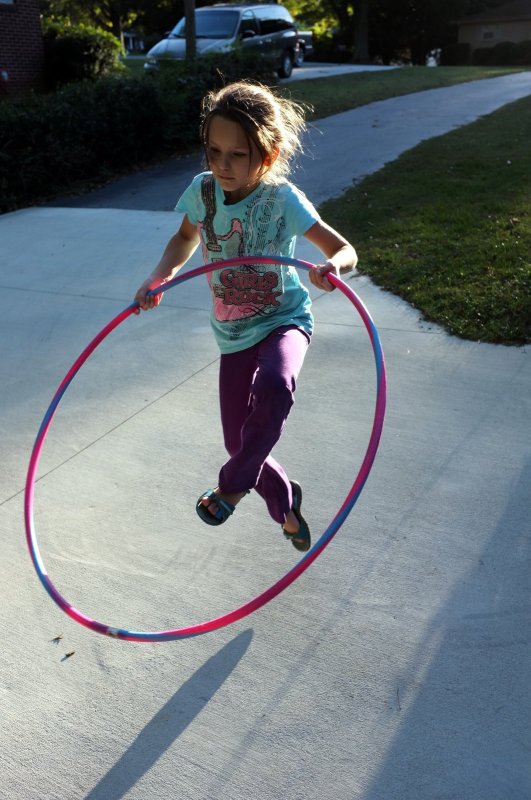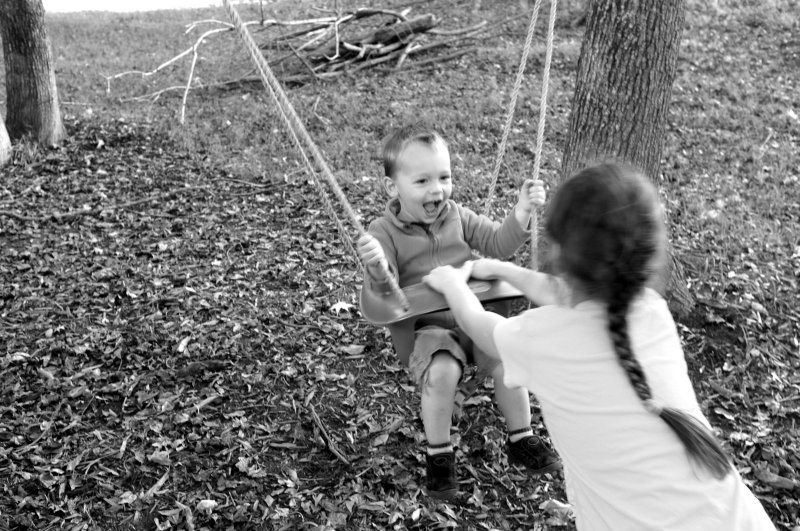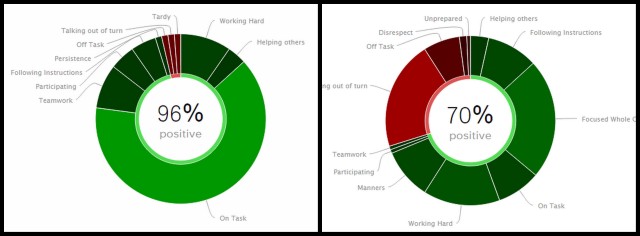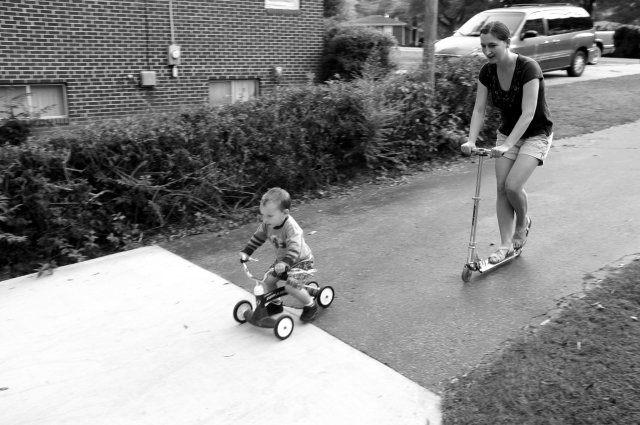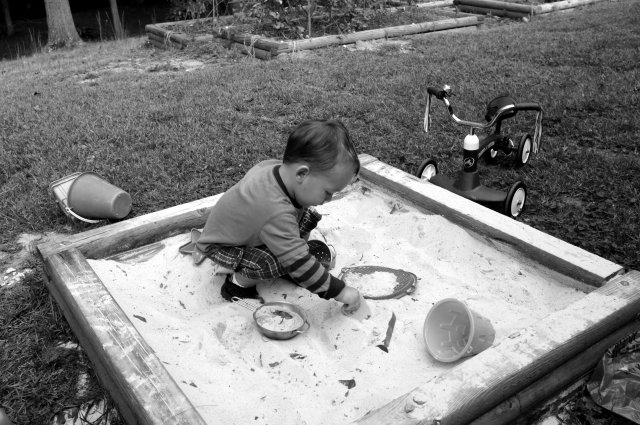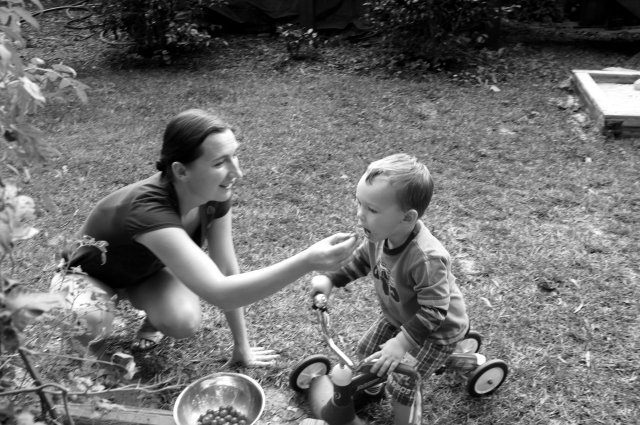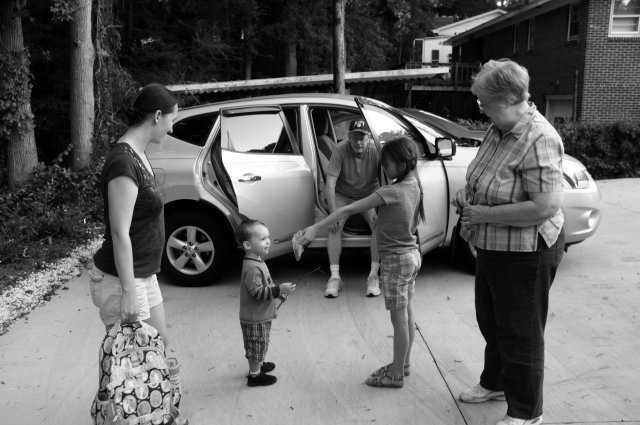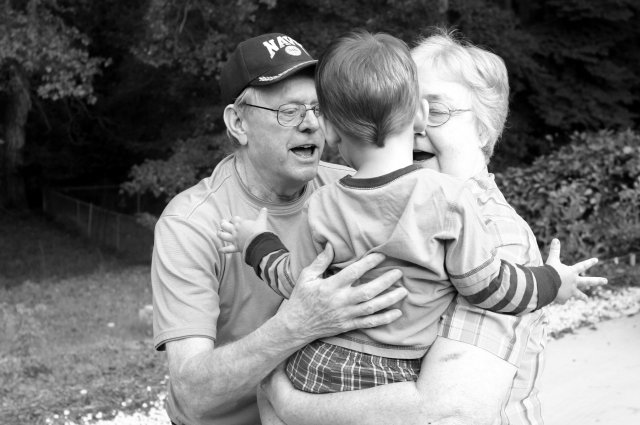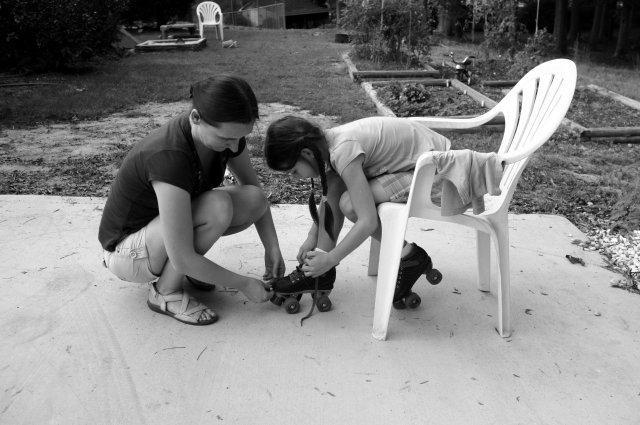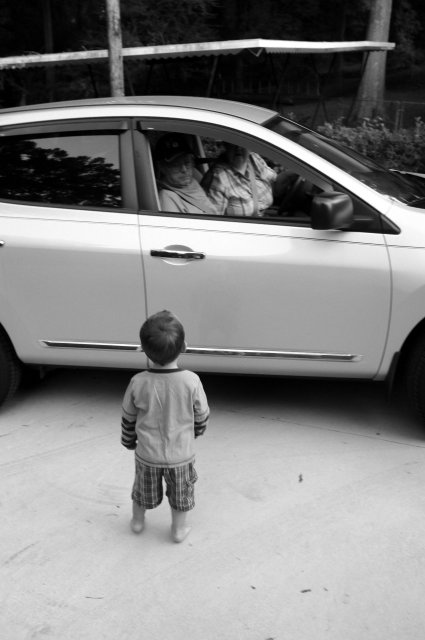After Dinner with the Boy
We’re creatures of habit, the Boy and I. After dinner, there’s really only one place to go. I could say it’s an effort to get exercise, but I’m the only one really moving: the Boy, he’s just laughing, chatting, fussing — being a typical two-year-old.
We move in shapes — triangles maybe — from the driveway to the swing to the sandbox, back to the driveway.
There are always interruptions. A siren sounds in the distance, draws closer. The Boy stops and watches.
After a bit more digging, he declares it’s time to go in. But on his way, it’s time for a little work, and I get a glimpse into his bilingual reality. In typical E fashion, he begins raking and explaining what he’s doing.
“To rake” in Polish is grabić. Before we head inside, he declares, “I’m grabing!”
Miś
A daughter of some Polish friends recently decided that she had outgrown an enormous plush bear that she had cherished for some time.
What to do with it? Goodwill? It’s a thought, but there’s no guarantee that the new owner will truly appreciate it.
And so she hit upon a simple idea: give it to L.
E, though, has also become completely obsessed with the teddy, miÅ› in Polish.
They seem to have the same obsession, though.
And so it’s a wonderful way to spend the last few moments of the evening before bath time. Until L decides she wants to take it back to her room.
Split Duty
Pumpkins
Denver Downs
Ten Years of MTS
Ten years ago, when K and I got married, I bought a domain name that was a clever (I thought) combination of our names: kingary.net. This domain name, in turn, came about when a friend, seeing our clever “kingary.net” suggested that it’s so corny that we’ll soon be wearing matching tracksuits. And then she bought this domain. And then I discovered Textpattern. And then I discovered WordPress. And the rest is sort of small-time history.
Ten years is a long time to keep a hobby, it seems to me.
Still
Most of the day has been in a blur. Everyone moving, though E starts with a bit of reading.
No time until it’s evening, when K makes a deal with me: “Look after the kids now, and I’ll get dinner ready.” The Boy was already swinging, so I just kept up the rhythm, adding our little distinctives.
For example, the swing likes to break, it seems. At the top of the arc, it just stops, gets hung up on something. I push, I tug, and finally when I give it a bump, it gives way and continues on its way.
Another little trick: the foot grab. It’s a delicate little move because the Boy’s head seems like it could just pop back and crack the top of the swing seat if I’m not careful. It’s the kind of move we do once or twice during a session, then I instantly regret it, because the Boy just wants more.
And of course the Girl’s insistence that it’s her turn causes more worries than a broken swing ever could: the Boy knows the broken swing is just a silly game, whereas the Girl’s turn is not.
No Power
Autumn Ritual
In years past, last Tuesday night’s gathering would have filled a large-capacity auditorium, or even a civic center, like the Scope Arena in Norfolk, Virginia. They would have sat in dozens of rows on the floor, up risers, into the balcony area, and walking into the arena that first night would have produced an excitement in everyone that was audible.

Thousands of people, gathering for eight days, in locations all over the world. It would look something like this, except for more formal attire.

Part of my past that I haven’t experienced in almost twenty years as best I can remember. Ninety-five was the last time, I think. Those gatherings have continued through those years, but my trajectory has gone in the opposite direction before veering back to something more like an eighty-degree angle: not quite the same beliefs, but certainly not a denial of all the beliefs.
Those gatherings have continued for the last twenty years, though the single, monolithic church organization that originally held it has splintered into almost countless pieces, with the organization itself changing its name and completely reversing most of its old doctrines — like the required eight-day Old Testament festival observance — so that it is indistinguishable from other mainline Protestant groups. The splinters that fell away have been keeping up the tradition, though, and last Tuesday night, in Bend, Oregon, a pastor opened the gathering with a message that has been repeated every fall with the regularity of the changing leaves.
They’ve been starting like that for decades now — I still wonder every autumn how many more decades it will continue. When will a group that proclaims definitive prophetic events within our generation and has been proclaiming it in vain for something like seventy years (Germany will rise again, don’t you know?) — when will such a group (or in this case, groups) disappear for good? For how long can someone declare that “time is short” and warn people that a great confederation of European nations with Germany and the Vatican at the head will rise up and utterly decimate the United States? At which point does the hypothesis — no, the sure prophecy — become just too ridiculously and obviously wrong for anyone to take seriously?
Dancing
Rainy Autumn Day
Rain, rain, rain. It poured, then drizzled, then paused, then repeated. All day.
“I guess we have a lazy day,” K laughed as we realized our original after-lunch, after-nap plans of going to a local pumpkin patch were not going to happen. We watched a movie, played games, did school work, chatted on the phone, took a nap (at least one of us), and finally, in the late afternoon or early evening, decided enough was enough. The advantage of having a park nearby.


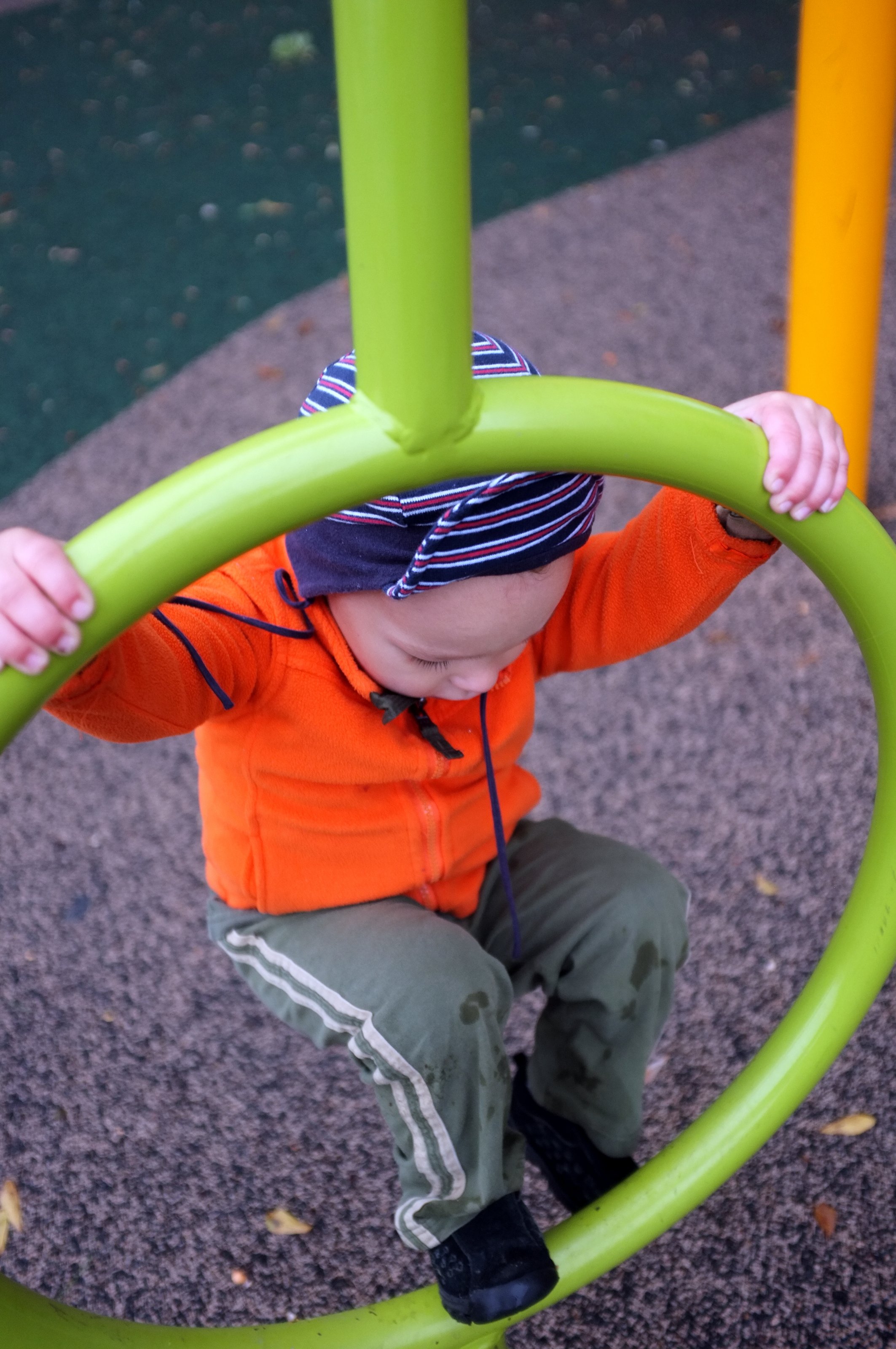

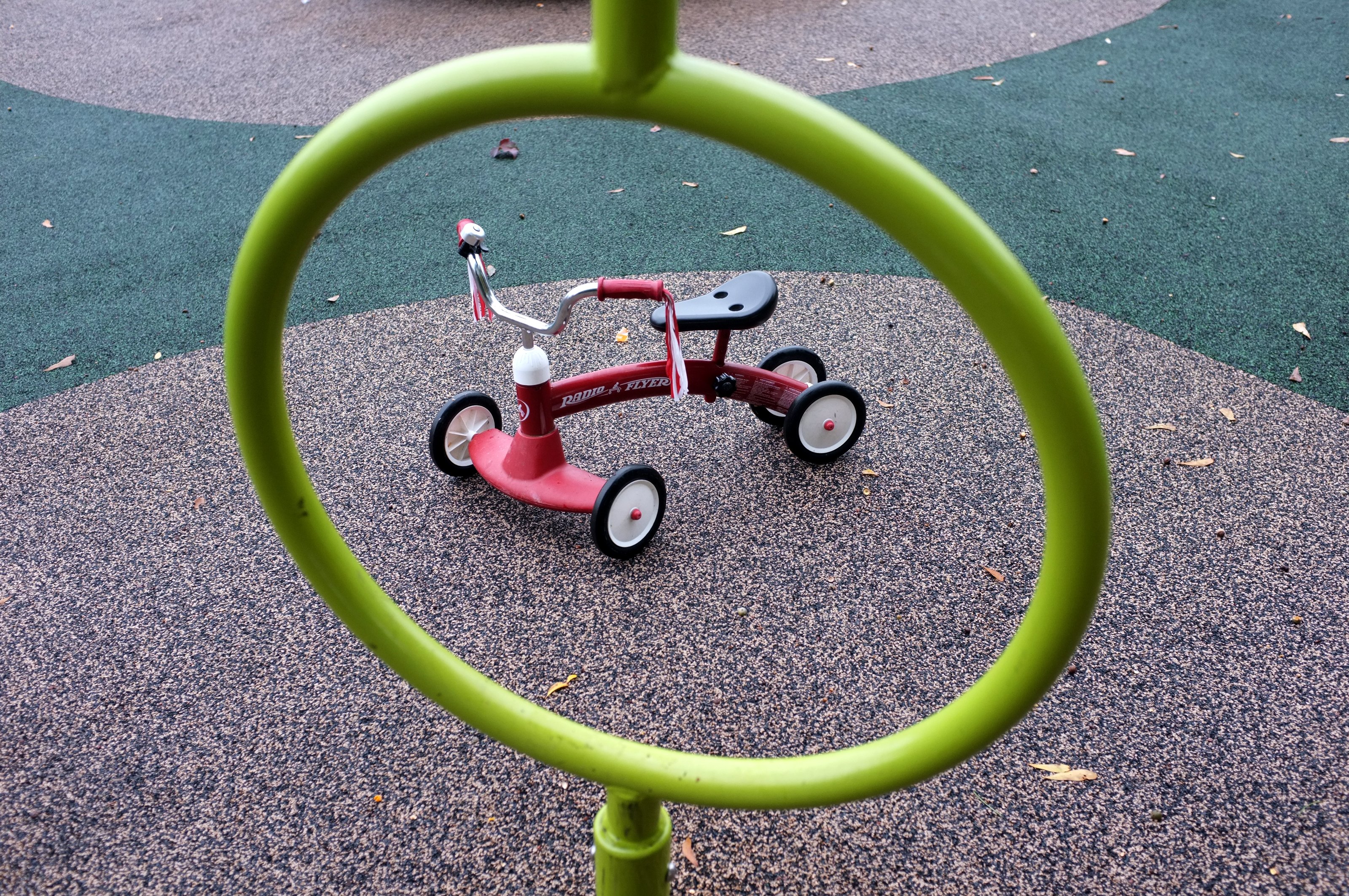

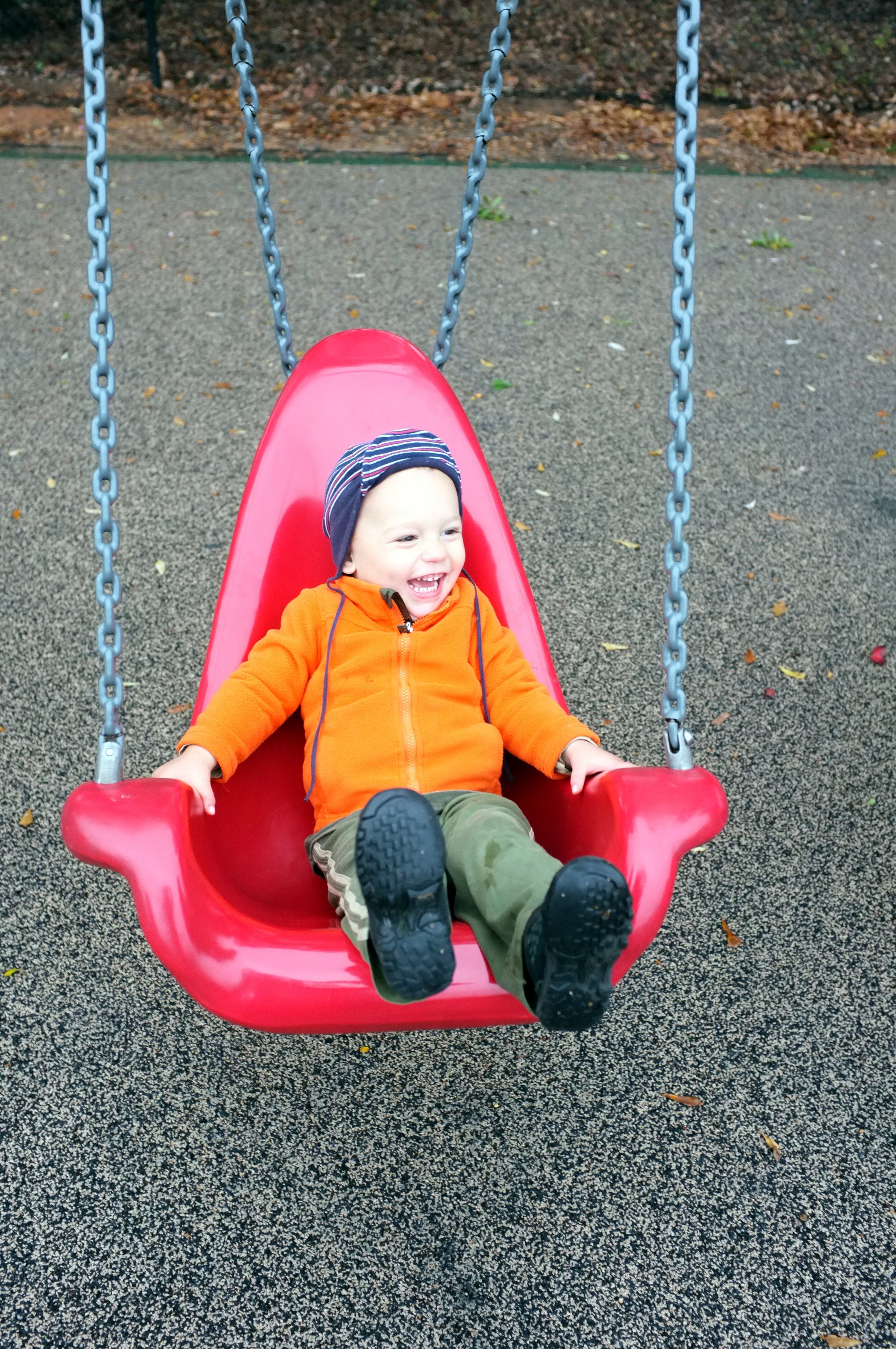

Saturday Morning
E’s Song
Twinkle twinkle, little star
How I wonder ABC.
Today’s Story
He squirmed out of my arms, twisting to the floor and then placing his hands on both knees before looking me straight in the eye.
“Daddy, I’ll be a good boy,” he pleadingly whispered. The fussing, playing, and general chaos around us in the crying room made it difficult actually to hear him, but he was only repeating what he’d been saying for the last several minutes. “Daddy? Daddy? I’ll be a good boy.”
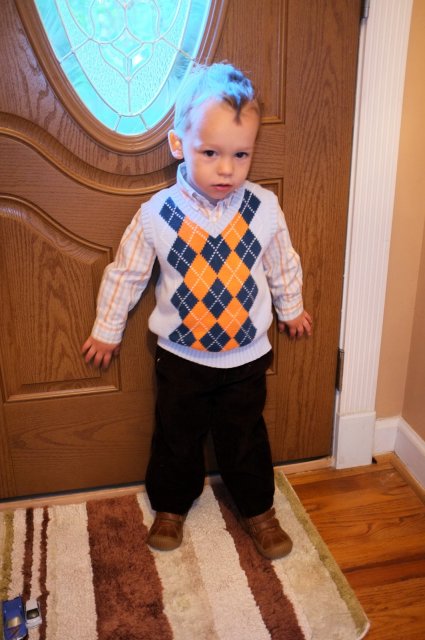
We’d returned to the crying room after trying to sit as a family in the church proper for the first time. Last week, during Polish Mass, when E and I sit alone, he’d managed it perfectly. He had motivation: Mama was singing in the choir, and he simply wanted to be able to see her clearly. “If you fuss at all, if you get up and try to wander around,” I’d warned, “we’ll go right back to the crying room.” And he’d been golden.
“Maybe we can start sitting together again,” K had suggested after Mass.
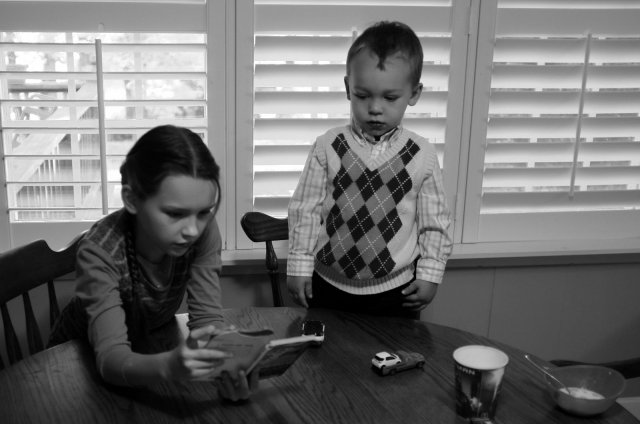
It’s been a long time since we all sat together. K tends to take the Boy to the crying room to avoid any unpleasantness for our pew-mates; I take the Girl to the nave (if it could be called a nave in a church of such semi-circular modernity). I offer to switch off with her, but K always insists on taking the Boy to the crying room.
Today, then, we tried it. The processional was fine. We made it through the first reading with few problems. But by the time we’d reaching the Gospel reading, it had become too much, and so I took our sweet boy to the crying room and found a seat in the back corner.
“You didn’t behave very well.”

“I didn’t behave well?” He always takes a statement and turns it into a question.
“No, you were squirming, rustling papers, distracting others.” He looked at me. “You have to be a good boy to sit stay there.” He climbed into my lap.
“A good boy?”
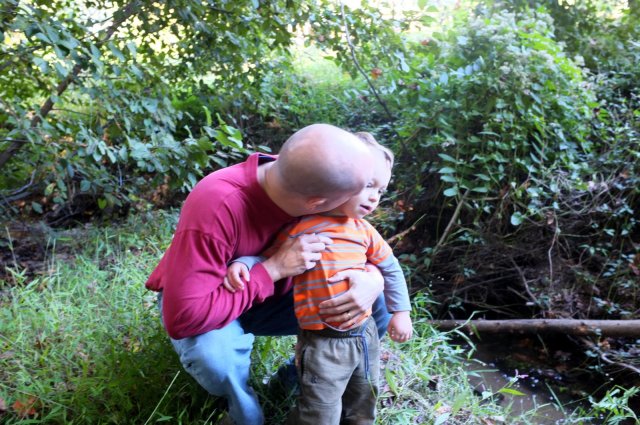
“Yes, a good boy. We’ll try again next week, but for today, we’re staying in here?”
“Staying in here?”
“Yes, staying in here.”


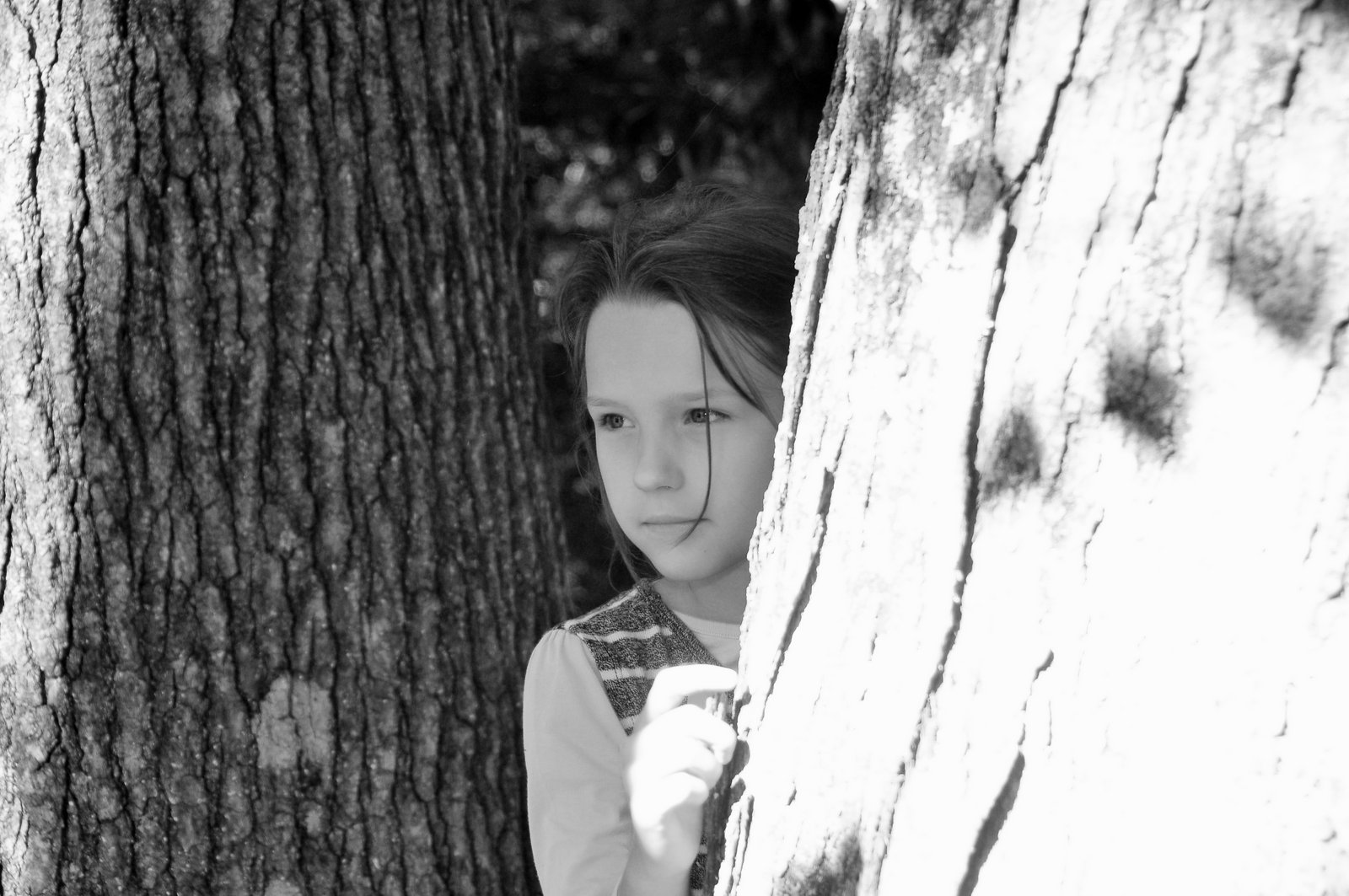

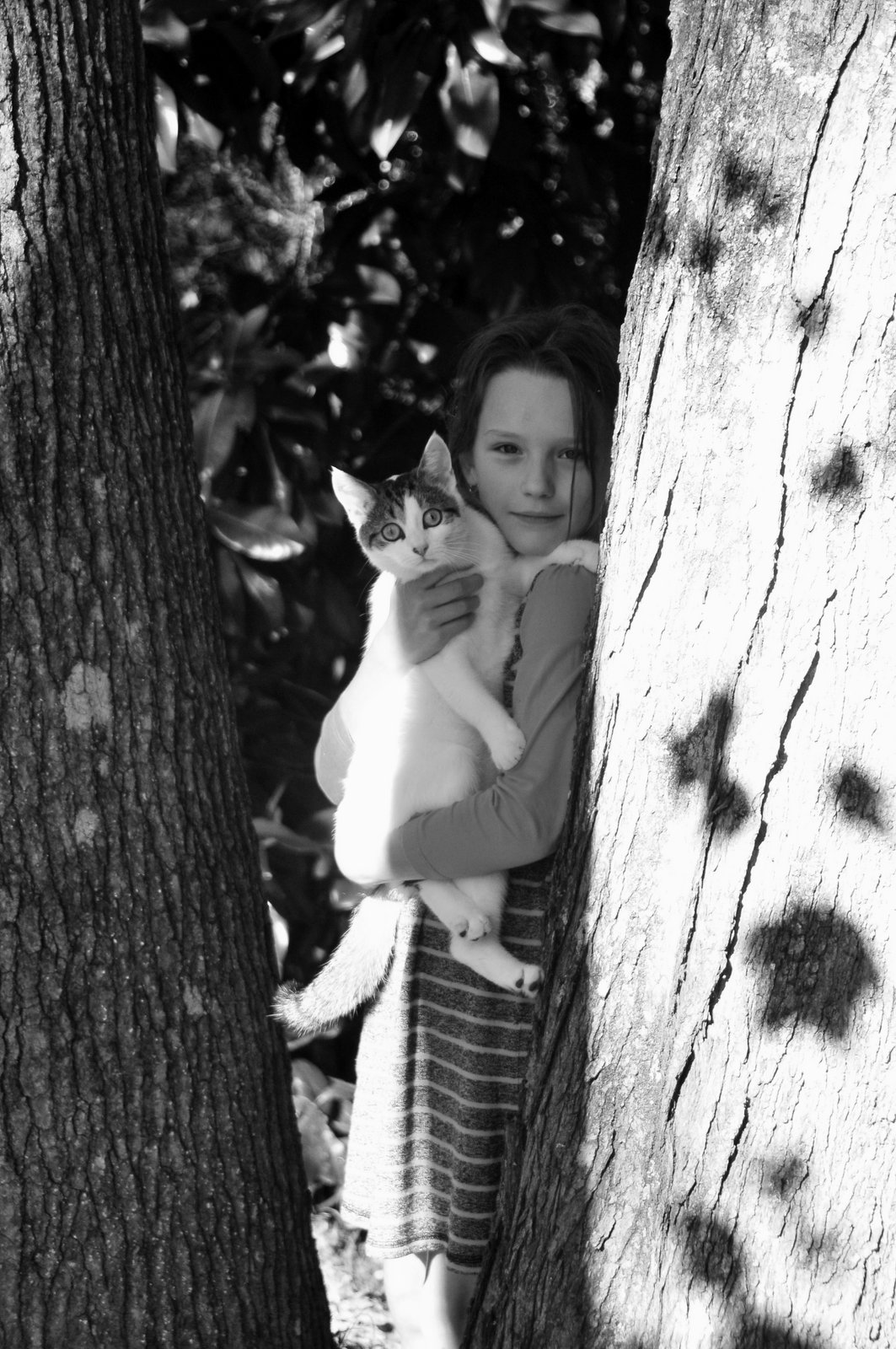
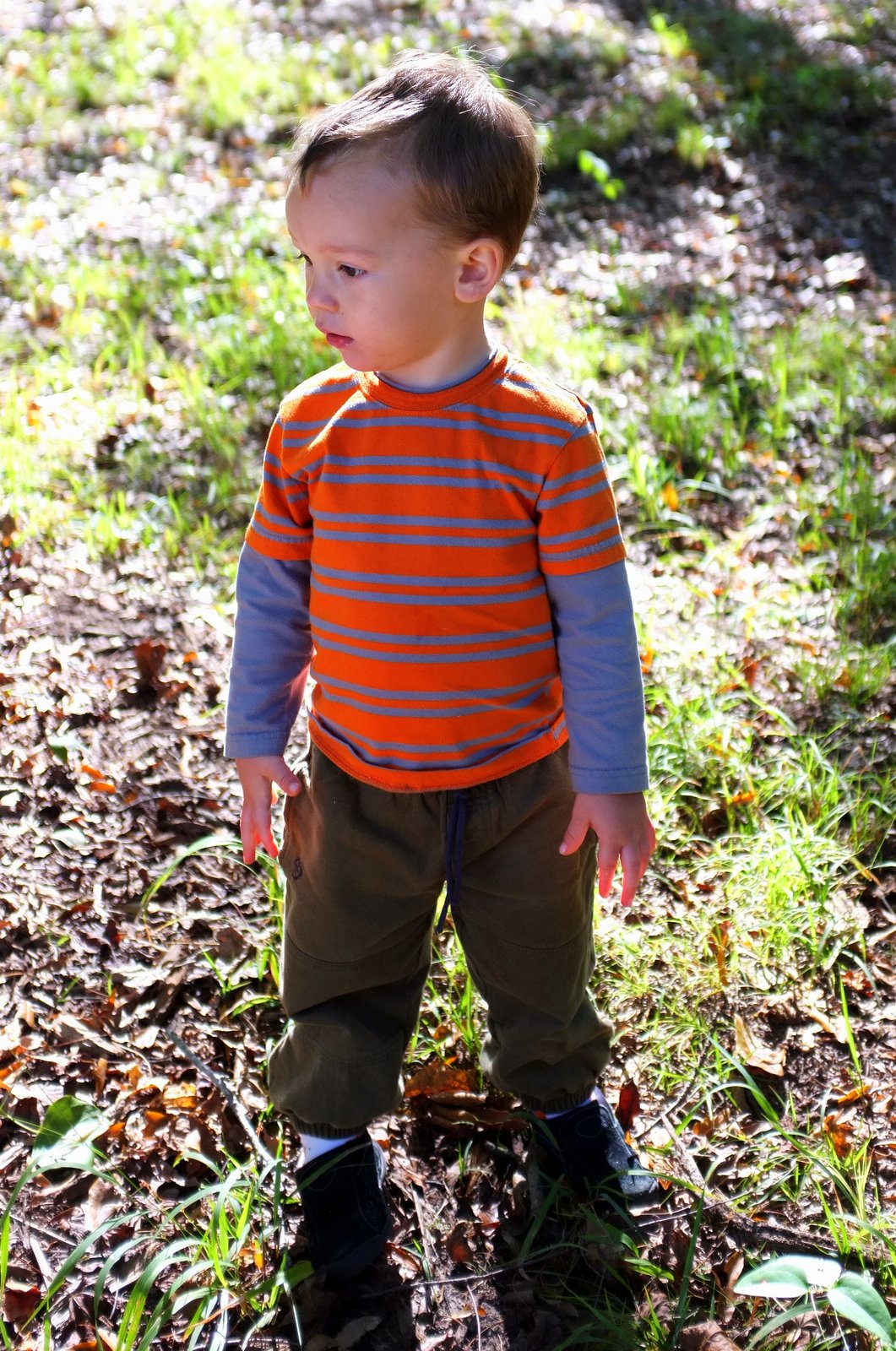
He put his head down on my shoulder for a moment, then began.
“I’ll be a good boy, Daddy.”
I explained it again. He accepted it. And again he stated, “I’ll be a good boy, Daddy.”

Yet he usually is. And the Girl is usually a good girl. Certainly I could complain about this or that: the Boy can be horridly stubborn, and the Girl can be achingly hyper. There’s more, and while I feel at times — and K concurs — that I focus on the negative with our children more than the positive, if I’m honest with myself, they’re good kids.
So why did this “I’ll be a good boy, Daddy” stick with me all day? Perhaps it was the tragic echoes of what that could imply: visions of abuse and children blaming themselves for their father’s evil behavior — perhaps it was the shudder that went through me when I imagined our children facing something like that. Maybe it was just the plaintiveness of his repetition, the seeming hopelessness in his voice at times. Whatever it was, felt more drawn to him, and to our daughter, than usual, because I think I heard another echo in that: “I’ll be a good Daddy, boy.”
Autumn Saturday
Forward and Backward
There is no corner to turn. To admit that to myself, to get myself to see that clearly and accept the implications of it as a teacher — that was the trick. One good day does not a corner make; one week of good days do not a corner make. When dealing with a class filled with troubled kids, there’s no six steps forward; there’s no question of three steps forward. Ever bit of forward momentum comes with drag. The drag of habit. The drag of need. The drag of peers.
And so just because one day is almost blindingly good, with 96% of recorded behaviors being positive, doesn’t mean that the next day can’t be a dismal failure, relatively speaking.
That only makes coming home all the sweeter. Though we take steps forward and stumble backward occasionally, I know there’s someone standing behind to catch the stumbles, to encourage, to accept. When the Boy has several accidents in daycare, the family is there to encourage him to do better.
When he comes home wearing the same thing he wore as he walked out the door that morning, it a cause for celebration, and we celebrate.
That’s not to say that my students at school don’t have support somewhere. It’s not to say their parents are somehow inferior. But the facts remain: some of the at-risk students I teach experience a daily school life that is so different from that of our daughter’s that it’s positively foreign.
What explanation fits? There are those with horrible parents who don’t support them, but I haven’t met many. No, scratch that. I haven’t met any, because they don’t come to the school. Most of the parents, though, seem caring, seem supportive. Who am I to judge, to suggest that their behavior is somehow different in private?
It’s the wrong question, though, because the cause, whatever it is, is something outside my control. What is in my control is how I treat them. And more importantly, what is in my control is how I treat my family.

